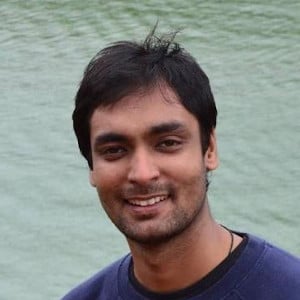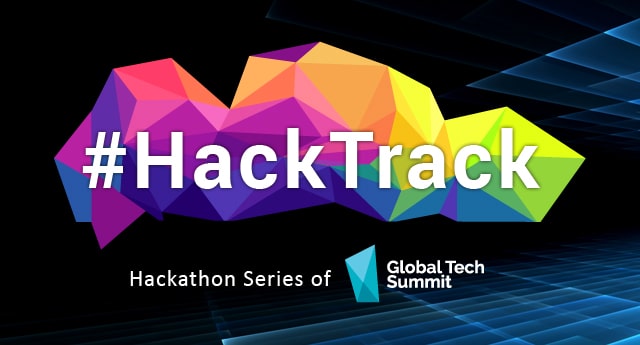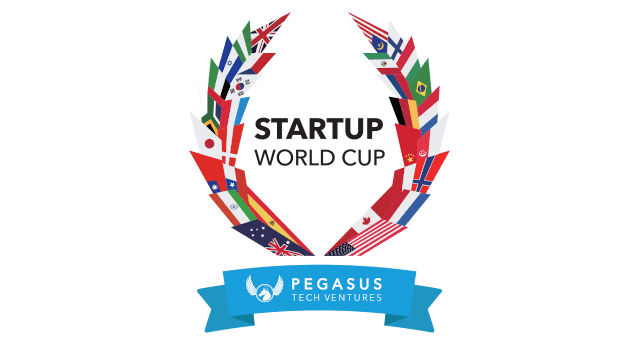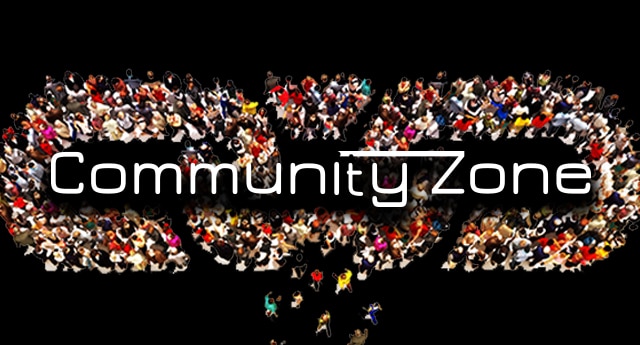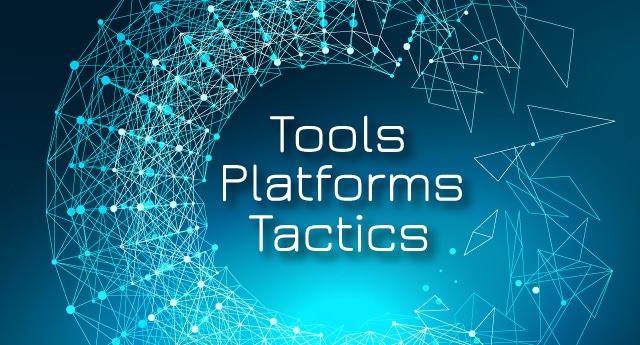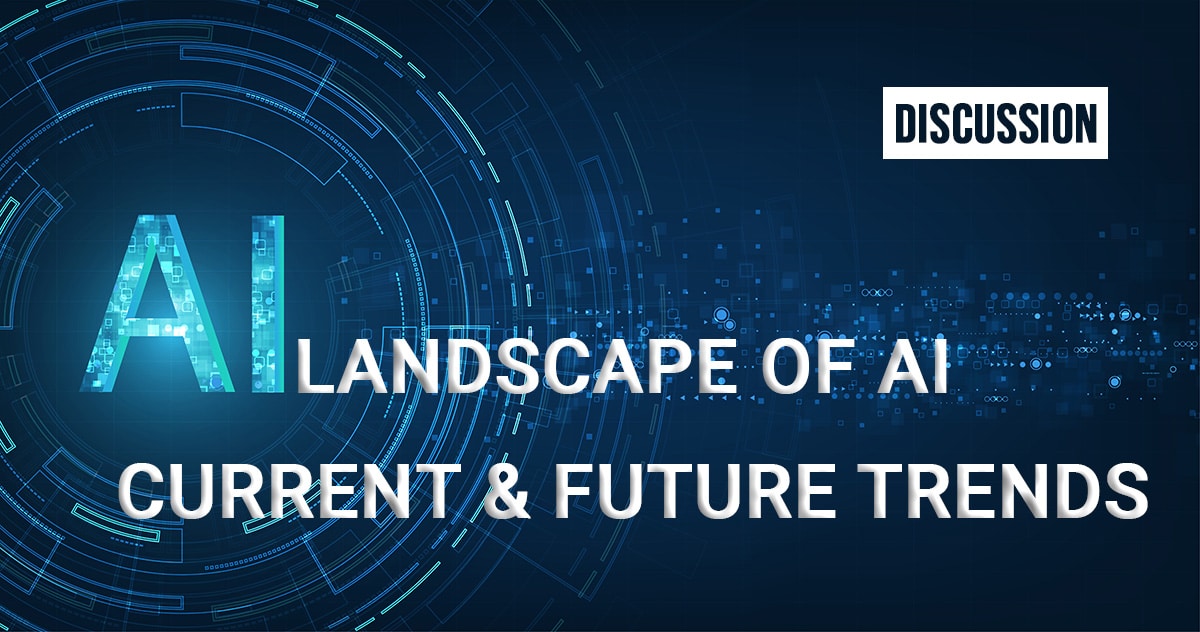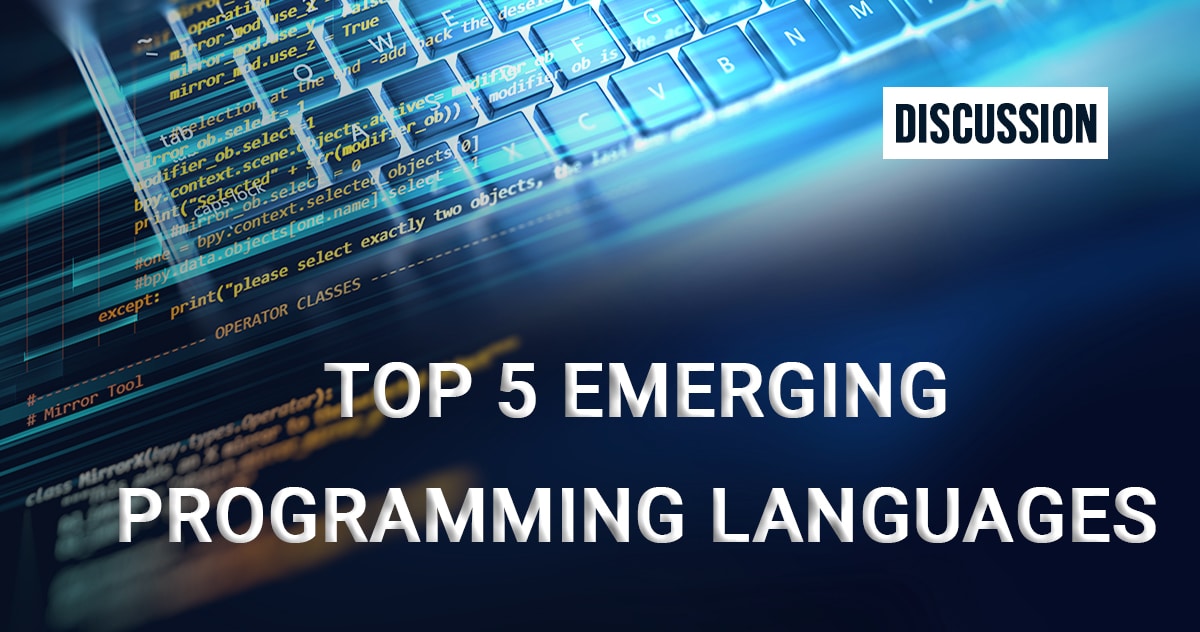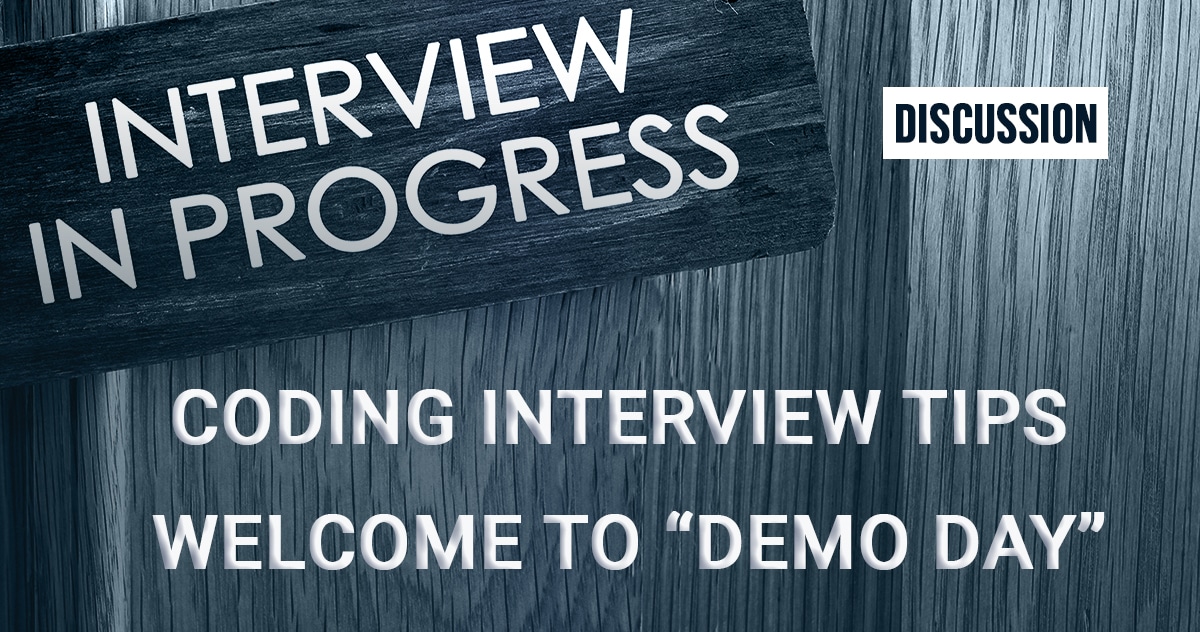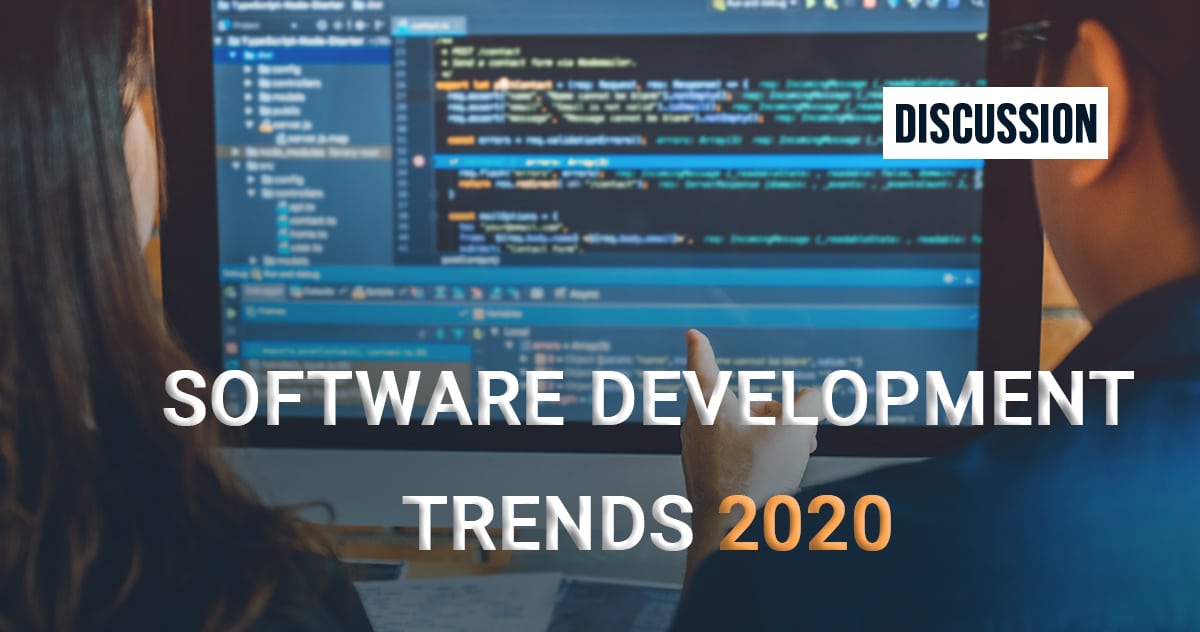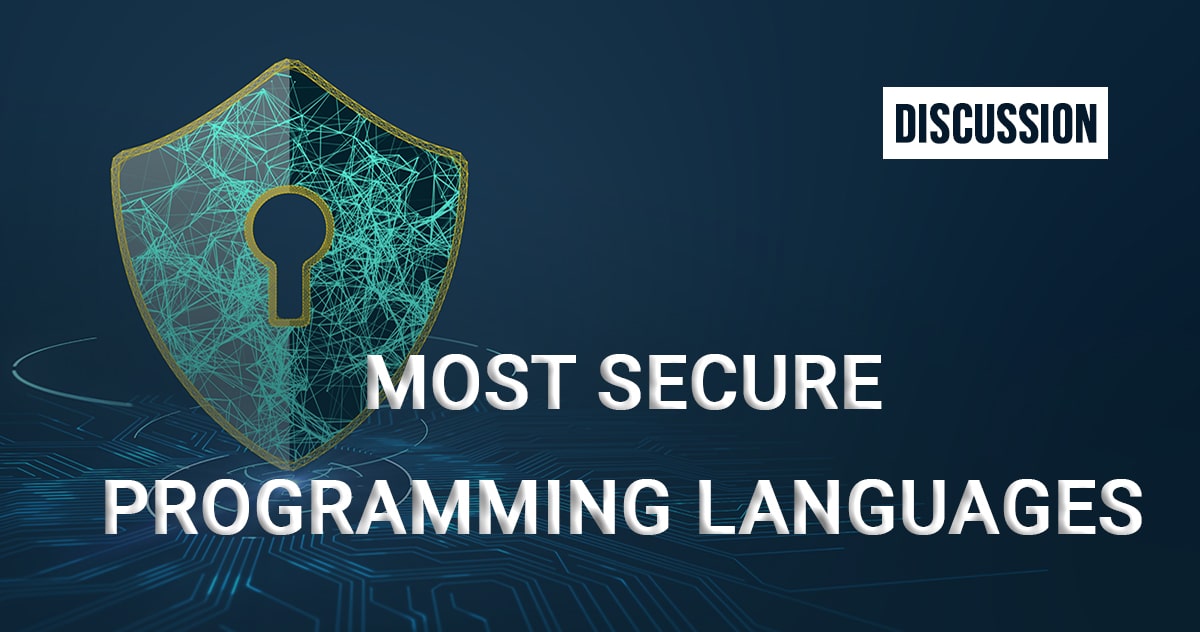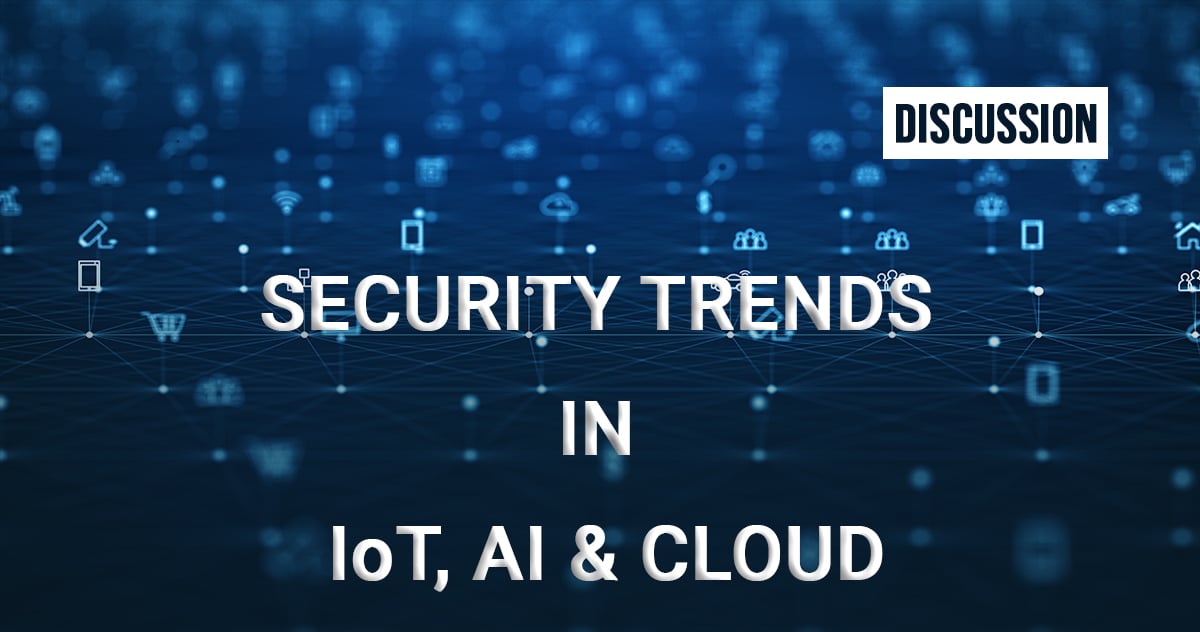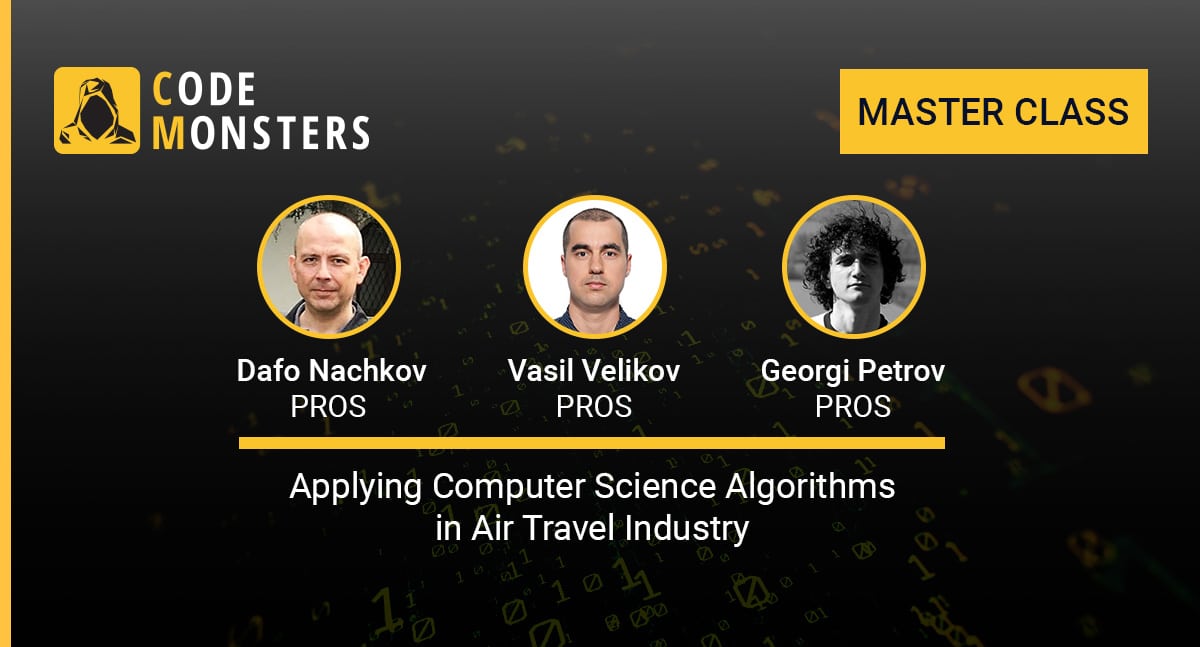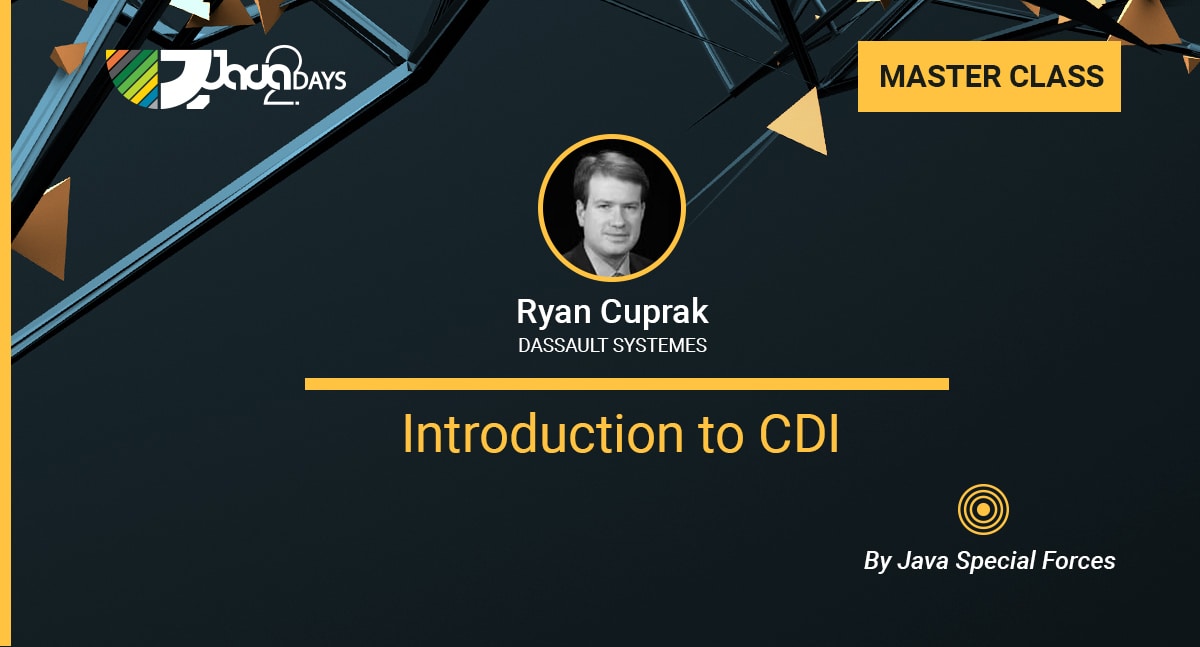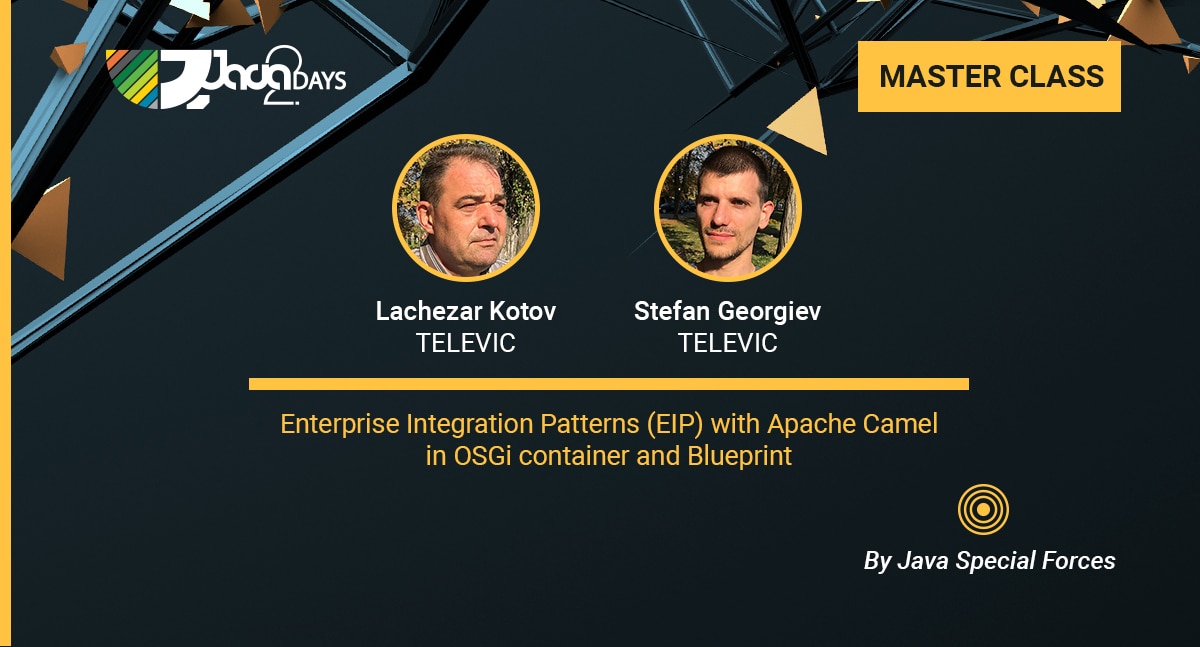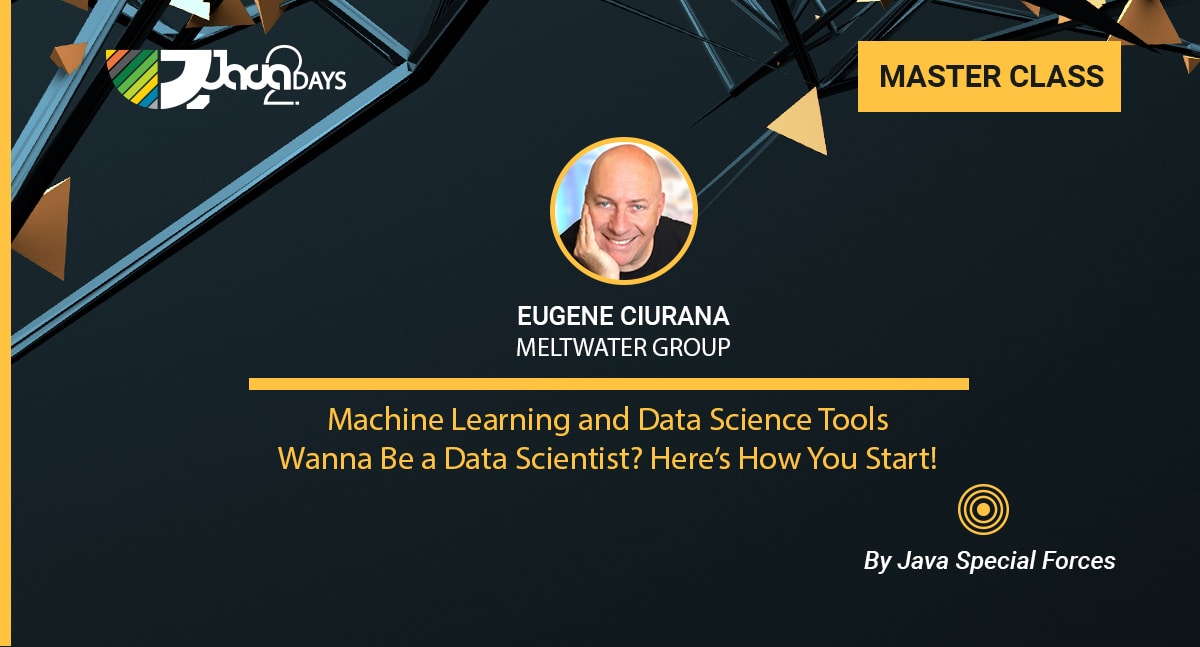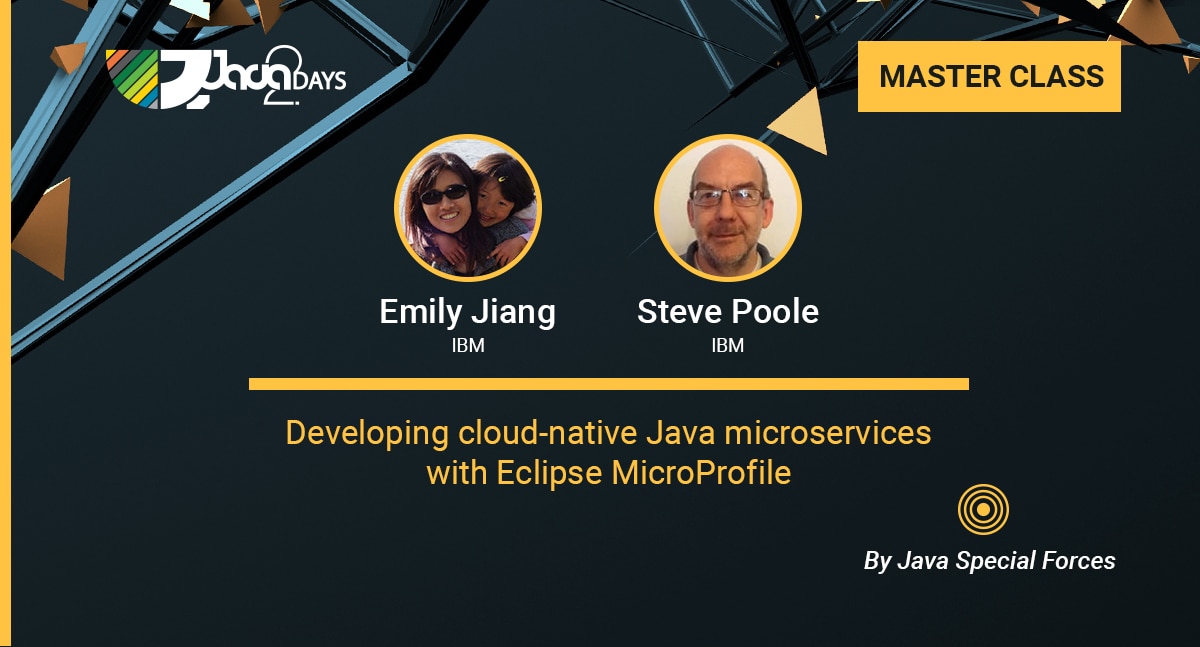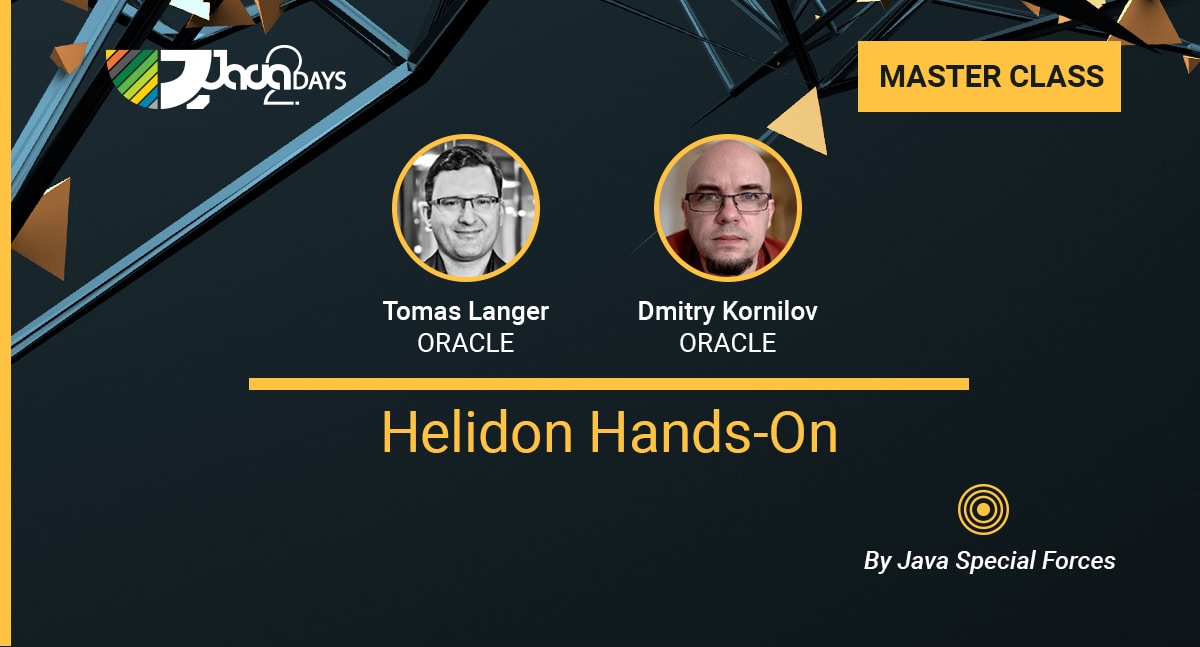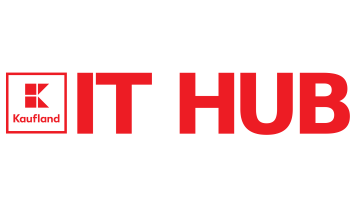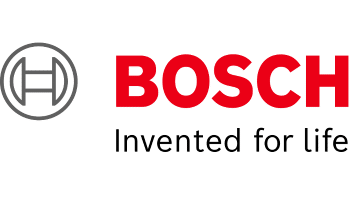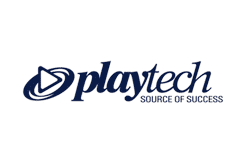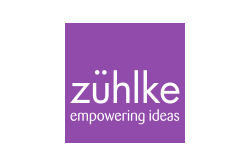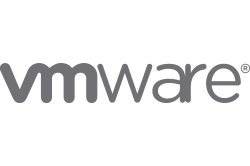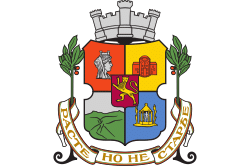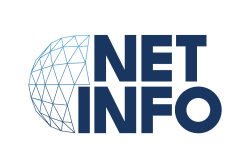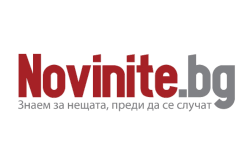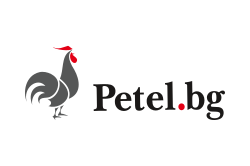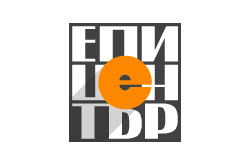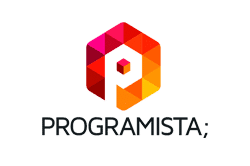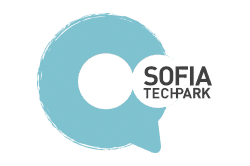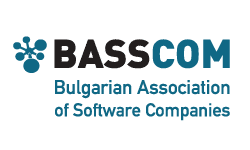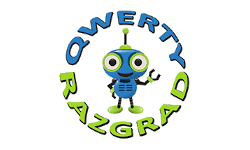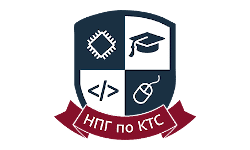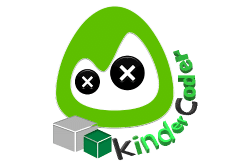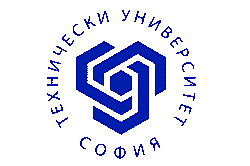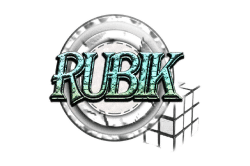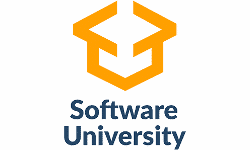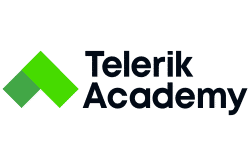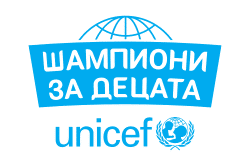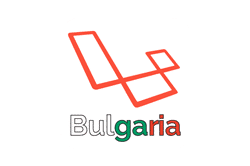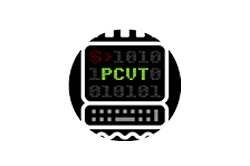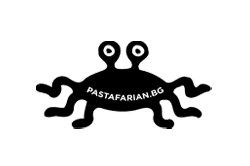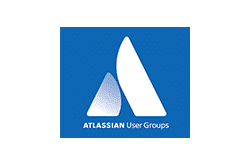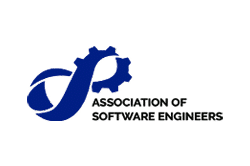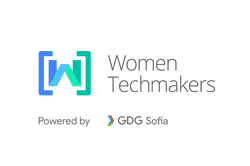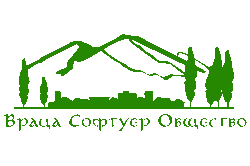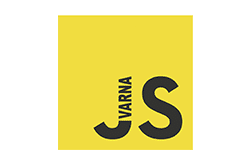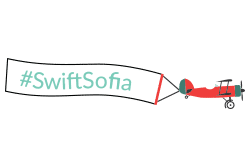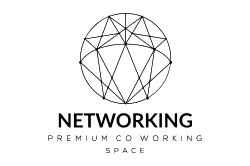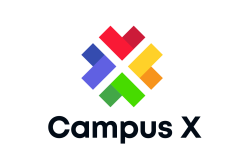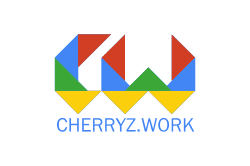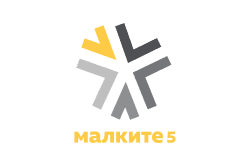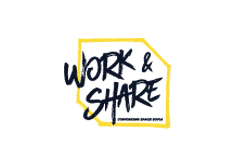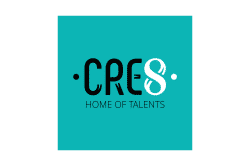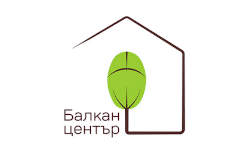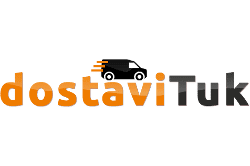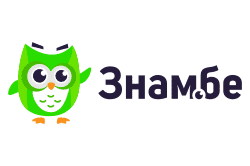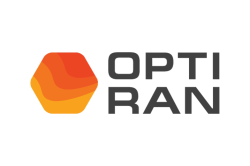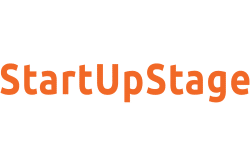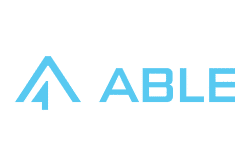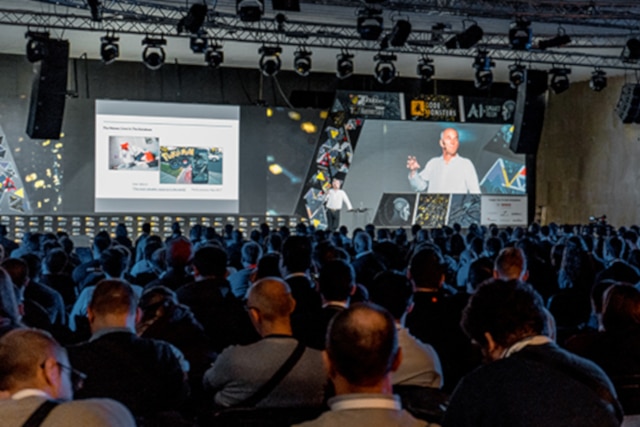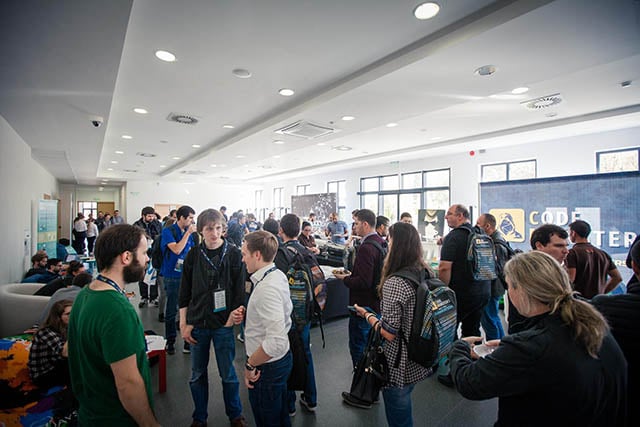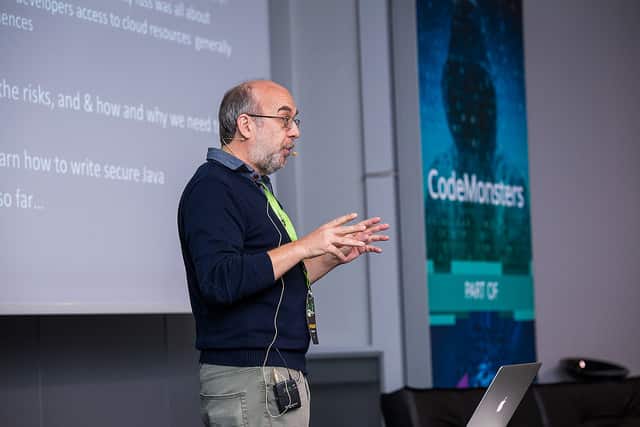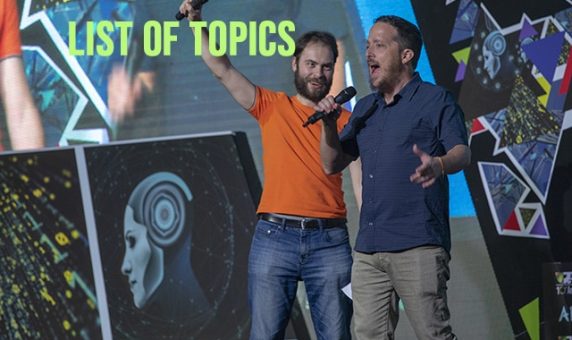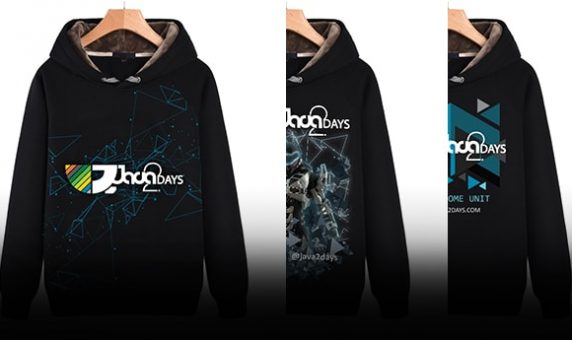-
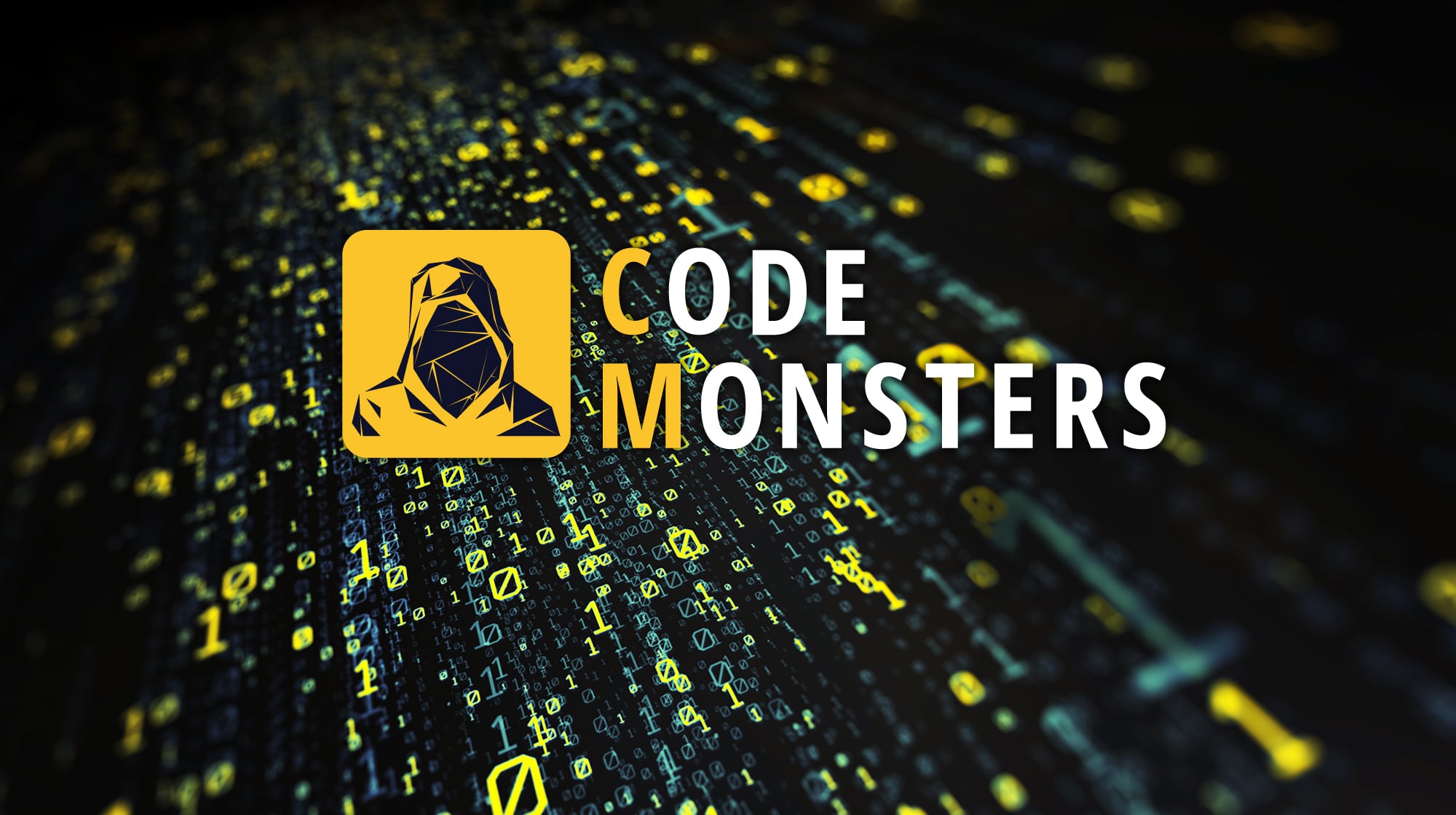 10-12 DecemberSofia, BulgariaRegister
10-12 DecemberSofia, BulgariaRegister
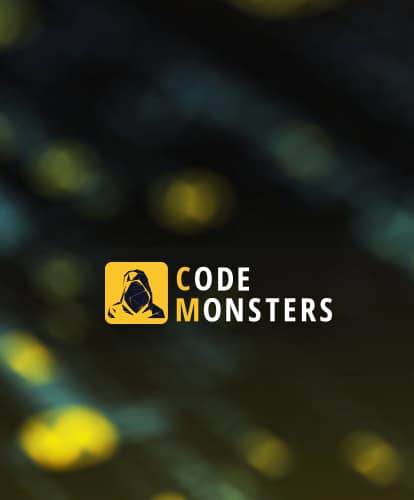
Call for papers is now open
Featured Speakers from 2018
Latest trends. Deep insights. Focused learning. Endless networking. CodeMonsters is the software development conference that offers it all. Come and learn how you can improve your knowledge and combine it with new technologies, to create monster-amazing code.
Check out the conference schedule
CodeMonsters 2019 Keynote Speakers

Yordanka Fandakova
Mayor of Sofia
Yordanka Fandakova
Yordanka Fandakova is Mayor of Sofia since 2009.
Her previous positions include elected Member of Parliament in 2009, Minister of Education, Youth and Science of the Republic of Bulgaria in 2009, Sofia Deputy Mayor for Culture, education and Sports in 2007-2009. Prior to that she gained rich 20-year experience in the area of education as a teacher and as a school principle of Vladislav Gramatik Secondary Comprehensive School with Foreign Language Teaching in Sofia.
Mrs. Fandakova holds MA in Russian Philology from Sofia University and Pushkin Institute in Moscow. She has acquired vast additional qualifications in the spheres of management of education, business administration, political management. She speaks Russian and English.
Mrs. Fandakova’s priorities and achievements during her mandates as Mayor of Sofia include fast development of city infrastructure, free and fast internet coverage in public spaces, environment, education, better conditions for doing business in Sofia. During her term in office Sofia became one of the 30 fastest developing cities in the world and the European capital city with the biggest GDP growth in the last 10 years.
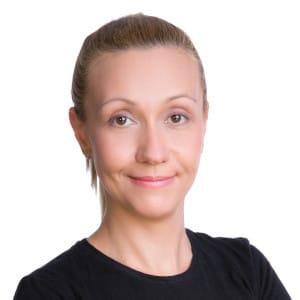
Iva Abadjieva
CEO Innovation Center Inc.
Iva Abadjieva
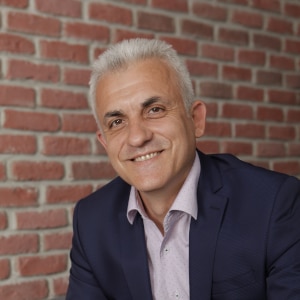
Ivan Georgiev
Manager of Kaufland Service IT Hub Kaufland Service IT Hub
Ivan Georgiev
Ivan Georgiev is the Manager of Kaufland Service IT Hub since its opening in 2016. The Hub is part of the Schwarz group which operates in 29 countries, on three continents and has more than 400 000 employees worldwide. The most famous brands gathered under its hat are Kaufland, Lidl & GreenCycle. The company here in Bulgaria is responsible for the operations of more than 11 000 stores. Its main strengths lie in Development, Infrastructure and Business & Application Support. The IT Hub started with 9 people and under Ivan’s leadership set up a course for steady growth. Not just in numbers but also in responsibilities. The company now has more than a 150 specialists and plans to expand even further.
Ivan comes with more than 16 years of experience in the field of IT. His background is one of a SAP Consultant but his strength lies in management as he has been dedicated to it for the last 12 years at least. He is most passionate about building sustainable teams and working on projects which span between countries. In the context of the Bulgarian IT market he works for investing in young professionals and helping Bulgarian specialists return back to their home country. For the company is a founder of the first internship program with high-school students from technical schools and is about to launch an internal academy in OOP.
With his strong management and leading example Ivan Georgiev has set the foundations of Kaufland Service, defined its corporate strategy and managed operations. He has made it into a recognizable company which can only be trusted and respected.
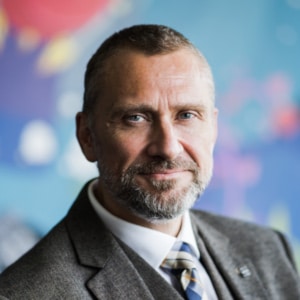
Dave Morris
Delivery Director and Head of Engineering REWE Digital
Dave Morris
Dave Morris is the Delivery Director and Head of Engineering for REWE Digital, a provider of online strategy and execution for the REWE Group – a $60B German retail and tourism group that includes the REWE supermarket chain which has more than 15,000 stores and 360,000 employees worldwide.
Under Dave’s leadership, REWE Digital is responsible for the digitalization of the food retail sector in Germany; ensuring that REWE customers are given the opportunity to order food online which is then delivered, fresh and cooled, to their doorsteps at their desired time.
Before joining REWE Digital, Dave was IT Engineering Director for Travis Perkins – the UK’s largest builder’s supply retailer where he led multiple digital transformation projects. Dave also led a 250+ person team in a multi-million dollar e:commerce platform rollout as Delivery Director at Tesco.
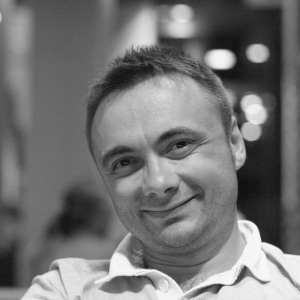
Dimitar Kostov
R&D Director VMware
Dimitar Kostov
Dimitar started his career in the IT industry over 25 years ago, while studying at the Sofia University.
Today Dimitar is a R&D Director at VMware, engaged in starting new products, building product organizations and taking part in the strategic planning of product families.
His Cloud Foundation team is delivering the easiest way to deploy and operate Kubernetes-based application runtime infrastructures. In his free time, Dimitar is an IoT evangelist.
Prior to VMware, he co-founded, led and held leadership positions in a number of high-tech companies, such as Methodia, SAP, Sciant.
Dimitar is a strong believer in that advanced technologies will continue to make the world a better place.
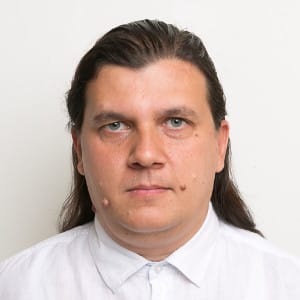
Dr. Pavlin Dobrev
Bosch Software Innovations
Dr. Pavlin Dobrev
Dr. Pavlin Dobrev is a Research and Development Manager at Bosch Software Innovations. The company owned by Bosch is focused on developing software for the Internet of Things (IoT). He is charge for the Quality Management of the Bosch IoT Suite, the entire support of ISO 9001, ISO 20000 and ISO 27001 at Bosch Software Innovations, as well as various research and customer projects.
Dr. Dobrev has more than two decades of experience with IoT including latest Java technologies, as well as in OSGi and embedded systems. He is an active participant in the OSGi Alliance, Java Community Process and other technical standards groups. He is a member of the Eclipse Foundation and participates in the development of the Eclipse IDE as a committer in the Equinox project.
Pavlin Dobrev has a PhD in Computer Systems in the area of Knowledge Management from the Institute for Parallel Processing, Bulgarian Academy of Sciences and holds an MsC in Computer Science from the Faculty of Mathematics and Informatics of Sofia University. He has written many scientific and technical publications and participated as speaker in prestigious international conferences.
Prototyping platforms for any IoT use case
Internet of Things is becoming the heart of more and more projects. Each IoT project starts with a PoC prototype. This workshop will walk you through what a prototyping platform is and how it impacts the development of a project. Using the Bosch XDK, we will go through what such a board offers as sensors, connectivity, functionality and extensions and interesting examples from the real world. Bosch and Zuhlke developed the platform to encourage community development and open source coding thus we will see some live coding on the stop.
Internet of Connected Everything
Connectivity is transforming all kind of domains – not just smart homes but also industry, buildings, agriculture and mobility. IoT has finally reached the corporate sector and is now being increasingly commercialized. As predicted Bosch alone already has more than 50 million of connected devices! . In 2025 all our products either possess intelligence themselves, or AI will have played a key role in their creation. In their keynote address, Dr. Pavlin Dobrev and Kai Hackbarth traces Bosch’s evolution to an IoT company. We will dive into the reference architecture for IoT domains like connected building, retail, smart architecture. For Bosch, Things are the most essential part in IoT. We design them to the requirements of IoT: Aware, Autonomous and Actionable.
Key findings:
- Bosch transformation from a traditional manufacturer to an IoT and high-tech company: Challenge accepted
- Innovation is part of our DNA
- Bosch embraces sustainability: climate neutrality worldwide by 2020 and new solutions for better air in cities
- Nobody can do IoT alone: IoT platforms, software, and developers
- The impact of open source and agile organization
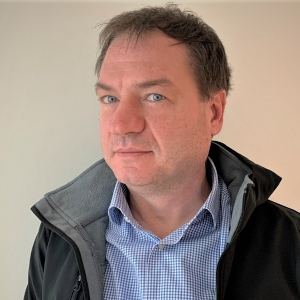
Stoyan Rakadjiyski
Manager applications development and services for Bulgaria DXC Technology
Stoyan Rakadjiyski
Stoyan Rakadjiyski is manager applications development and services for Bulgaria in DXC Technology. He holds a Master of Science degree in computer science from Sofia University “St. Kliment Ohridski” and started his career in IT 24 years ago.
His team in DXC runs projects on latest technologies in Java, .Net and C++ for DXC customers, which are global leaders in their business domains such as Banking, Insurance, Transport, Health cate, Engineering software and others. The team is focused on getting deep knowledge in how the customers work and to deliver them innovation through adoption of next generation IT solutions.
CodeMonsters 2019 Speakers
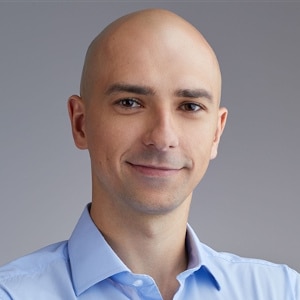
Martin Tsarev
Zühlke Engineering
Martin Tsarev
Martin is a graduate in Computer Science from the Technical University Darmstadt, Germany. He has been working in Germany as an embedded software engineer and has been developing mainly safety-critical low-level software in C/C++ and IoT systems. Martin is currently leading enterprise software projects at Zuhlke Engineering Bulgaria.
Prototyping platforms for any IoT use case
Internet of Things is becoming the heart of more and more projects. Each IoT project starts with a PoC prototype. This workshop will walk you through what a prototyping platform is and how it impacts the development of a project. Using the Bosch XDK, we will go through what such a board offers as sensors, connectivity, functionality and extensions and interesting examples from the real world. Bosch and Zuhlke developed the platform to encourage community development and open source coding thus we will see some live coding on the stop.
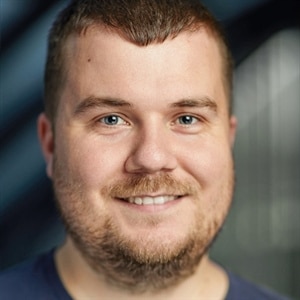
Dimitar Krastev
Zühlke Engineering
Dimitar Krastev
Dimitar Krastev is currently Expert Software Engineer at Zühlke Engineering. Before joining Zühlke, he was Senior Software Developer at VMware where he was involved as a consultant in various cloud projects, including leading telecommunication providers in Europe. During that period Dimitar was in several high-profile project requiring special customer focus. Alongside being full stack developer, he is specifically focused on customer facing workshops, escalation management and consulting.
You are a consultant, you just don’t know it yet
In this fast changing world and the adoption of Agile processes, the customer exposure of the developers is increasing. This introduces a demand for new set of skills. Developers are expected to communicate and collaborate with the customer closely. This creates a new set of challenges every developer will face. Soft skills are now becoming a common asset for every developer.
Prototyping platforms for any IoT use case
Internet of Things is becoming the heart of more and more projects. Each IoT project starts with a PoC prototype. This workshop will walk you through what a prototyping platform is and how it impacts the development of a project. Using the Bosch XDK, we will go through what such a board offers as sensors, connectivity, functionality and extensions and interesting examples from the real world. Bosch and Zuhlke developed the platform to encourage community development and open source coding thus we will see some live coding on the stop.
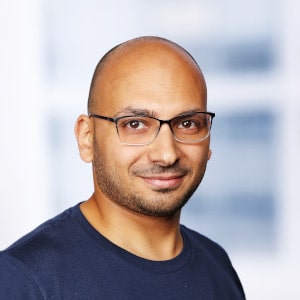
Ahmad Gohar
IBM
Ahmad Gohar
Ahmad Gohar is a Sr. Software Architect, People Manager, Microservices – Java & Web Development Services Area Lead at IBM. He has been building and leading developer solutions/communities for 13+ years at several companies. Subject Matter Expert (SME) for Java/Web/Blockchain technologies. Furthermore, Gohar is a Java Community Process (JCP) Member. Gohar has deep expertise in leading cross-functional teams to develop and execute strategy. He has long been a frequent speaker at universities, JUGs, events, and conferences worldwide.
Moreover, Gohar holds M.SC in Software Engineering from Egypt, also MIBA in Global Business Management from ESLSCA France. He is IBM Certified Expert IT Specialist, OpenGroup Master IT Specialist, OpenGroup TOGAF 9.1 L2 Certified. Also, he is certified as OCEJPA, OCPWCD, OCPJP, OCPSQL/PL, OCASQL/PL, MCP. Gohar Won 2014/2016 Duke’s Choice Awards, GBS Excellence Award 2017, and Manager Choice Award 2017/2018/2019. Furthermore, Gohar is an Egyptian Java user group EG-JUG member.
His career has taken him to different companies such as eFinance, United Nations, ResalaSoft, Hyundai Construction, and Misr Consultant.
Microservices with Docker and Kubernetes: Best Practices for Java Developers
This session is for Java developers and architects interested in developing microservices. It starts with the high-level understanding and fundamental prerequisites that should be in place to be successful with a microservice architecture. Unfortunately, just using new technology doesn’t magically solve distributed systems’ problems. The presentation takes a look at some of the forces involved and what successful companies have done to make microservices work for them, including culture, organizational structure, and market pressures. Then it takes a deep dive into a few Java frameworks for implementing microservices. The accompanying source code repository can be found on GitHub.

Lachezar Balev
REWE Digital
Lachezar Balev
I am a software engineer with 19+ years real experience in various projects. I met Java in 2000 in the form of J2SE 1.2. But my hello world “application” was written in BASIC long before that. Currently I work at REWE Digital Bulgaria on an exciting Microservice oriented architecture. I’m a curious person – I love to experiment, peek under the hood of popular open source frameworks and build usable and reliable software. You can meet me at Stack Overflow, GitHub, and some smaller online communities. In my free time I love riding my motorbike around the country.
Deploying containerized applications into a Kubernetes cluster
Our fantastic apps deserve the right infrastructure! In this talk we will make a short introduction to Kubernetes (K8s). Next we will dockerize and deploy two simple applications into a k8s cluster.
Our ambitious goal is that the audience will feel comfy with what we are doing and will be able to easily follow us. No prior knowledge of k8s is required! The apps and the scripts that we are going to use will be available at Github.
The talk will begin with a quick glimpse into the k8s architecture. Then we will go a bit deeper with some of the most important k8s objects like Nodes, Controllers, Services. When we lay down the foundations it will be time to introduce our sample applications – a small Spring Boot backend and an Angular frontend which offers the possibility for amusing interaction with the attendees (e.g. by scanning a QR Code). At the end we will deploy these apps in GClould and/or Minikube and see them up and running.

Blanca Garcia Gil
BBC
Blanca Garcia Gil
Blanca Garcia Gil is a principal systems engineer at BBC. She currently works on a team whose aim is to provide a reliable platform at petabyte scale for data engineering and machine learning.
Last year she gave her first talk at DevoxxUK and is keen in sharing her journey and the positive benefits it has had one year on.
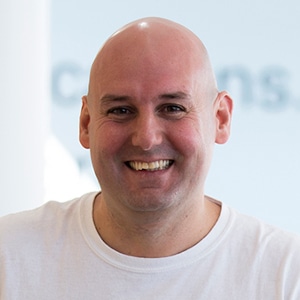
Luis Weir
Oracle
Luis Weir
Luis Weir is a Director of Software Development at Oracle and a former Chief Architect at Capgemini, Oracle Ace Director and Oracle Groundbreaker Ambassador. An API management and microservices evangelist, Luis has over 17 years of experience implementing complex distributed systems around the world.
Co-author of 3 other books as well as numerous articles and white papers, Luis has been a frequent speaker frequent speaker at known events such as CodeOne, Devoxx, Gartner AAD&I, Oracle OpenWorld, Java2Days and many user groups and meetups.
Luis holds an MS in Corporate Networks and Systems Integration from the Universitat Politecnica de Valencia (UPV) and a BS in Electronics Engineering from the Universidad Nueva Esparta.
Event-driven API strategies: from WebHooks to GraphQL Subscriptions
This talk explores different strategies to get around common constraints imposed by synchronous (request/response) APIs when it comes to supporting asynchronous and event-driven communication between server and clients thus avoiding inefficient and infective API pooling techniques.
Through a comprehensive architectural overview and a series of hands-on demonstrations, this presentation will illustrate how different asynchronous API strategies such as the above mentioned can be applied in order to deliver event-driven architectures in the web.
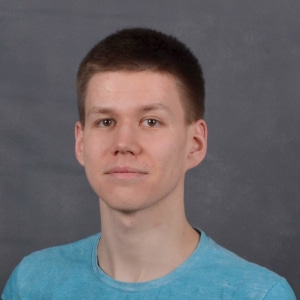
Anton Sutarmin
Devexperts
Anton Sutarmin
Anton has spent more than three years in commercial front-end development and has been passionate about it since high school. Currently, he is an eager explorer of Typescript, functional, and reactive programming, as well as making beautiful interfaces. Anton also loves various sports and enjoys traveling in his spare time.
Build frontend apps that never crash with fp-ts ecosystem
One of the most important properties of modern frontend applications is reliability. Want to learn how to build frontend applications that never crash? Join me and let’s dive into the know-how of making your apps more reliable and your development process more focused with the help of our fp-ts library and its large ecosystem. I’ll share insights on true type safety with Typescript, runtime exception safety, IO safety, and much more.
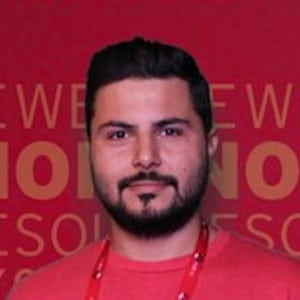
Ali Ok
Red Hat
Ali Ok
Ali Ok works for Red Hat with a strong focus on the cloud. He is an Apache committer.
He is using Kubernetes, OpenShift and Operators in his day-to-day activities.
He experiments with many other emerging technologies in his free time.
Kubernetes Operators 101
Kubernetes does all the boring yet critical tasks like horizontal scaling and zero down-time deployments, but what about more complex tasks like database sharding and agent registration?
Kubernetes operators are capable of automating complex tasks, reducing the human factor even more. The barrier to entry is not as high as you think!
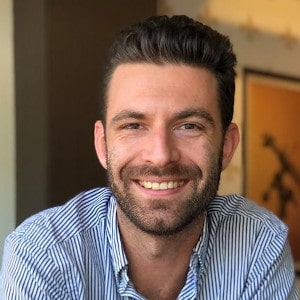
Ondrej Stastny
VMWare
Ondrej Stastny
Born and raised in Prague, Czech Republic, Ondrej has spent the last couple of years leading engineering teams in Seattle, WA. In his 12+ years in the industry, he has worked on a variety of products from search engines to mobile apps, as a full stack software engineer, a field engineer, and an engineering leader. His recent work involved shipping features for VMware Workspace ONE UEM which integrate with computer assembly lines at Dell Technologies. And now he’s building a new team to tackle identity and single sign-on across the portfolio of VMware products.
Journey from On-prem to the Cloud, the Field Guide
This presentation will introduce VMWare Identity Manager and it’s multi-year transformation from on-prem only product to Software-as-a-Service with multiple deployments per day, serving customers around the globe.
This “field guide” will focus on concrete learnings and practical examples of moving an on-prem monolith to AWS-hosted set of micro-services built on Java Stack. We will talk about a monolith decomposition, patterns and practices for SaaS and also about the path to achieving 99.99% availability.
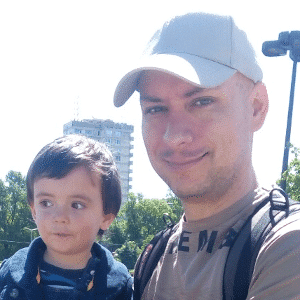
Georgi Peychev
REWE Digital
Georgi Peychev
Georgi is a software engineer with more than 15 years of experience and background in a wide range of contexts (such as banking, insurances, large retail). Most of the time he is focusing on backend development with Spring Boot but also likes Angular and Android development. Currently he is working for REWE Digital.
Deploying containerized applications into a Kubernetes cluster
Our fantastic apps deserve the right infrastructure! In this talk we will make a short introduction to Kubernetes (K8s). Next we will dockerize and deploy two simple applications into a k8s cluster.
Our ambitious goal is that the audience will feel comfy with what we are doing and will be able to easily follow us. No prior knowledge of k8s is required! The apps and the scripts that we are going to use will be available at Github.
The talk will begin with a quick glimpse into the k8s architecture. Then we will go a bit deeper with some of the most important k8s objects like Nodes, Controllers, Services. When we lay down the foundations it will be time to introduce our sample applications – a small Spring Boot backend and an Angular frontend which offers the possibility for amusing interaction with the attendees (e.g. by scanning a QR Code). At the end we will deploy these apps in GClould and/or Minikube and see them up and running.
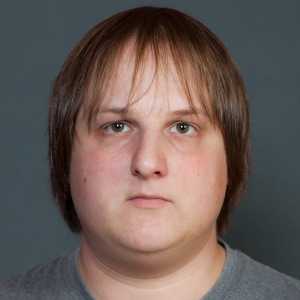
Pavel Chernyshov
Devexperts
Pavel Chernyshov
Master iOS developer with over eight years of hands-on experience, Pavel is in a never-ending search for processes and tools that produce faster, better mobile applications. Pavel leads a multinational distributed team of developers located in different offices and knows how to unite them in pursuit of an end product. He’s a fan of Alistair Cockburn that believes agile methodologies will save the world. He doesn’t understand the term feature freeze.
Take no objections to Java for iOS
To a certain extent you can reuse the code when building mobile applications both for iOS and Android. Ideally, you want to reuse as much as possible to save time. In client-server apps, shared logic can be moved to the server-side, and most of the time, it’s acceptable. But what if it’s not in favor of the UX? What if it’s the kind that can’t be moved? What if you don’t even have a server? Can you optimize, or is it time to double the work and time spent fixing bugs to account for different platforms?
This is where J2ObjC comes into play. J2ObjC is an open-source tool from Google that can translate source code written in Java into Objective-C. This way, Java source can become a part of the iOS builds.
Devexperts have been tailoring code translation from Java to ObjC for years, and this approach is integrated deeply into our development process. We’re here to inspire you to give it a try yourself by showcasing some of our biggest wins with J2ObjC. The road ahead is scary. Fear not, we’ve got the painkiller for easily integrating J2ObjC into the development pipeline.

Paul King
OCI
Paul King
Dr Paul King has been contributing to open source projects for nearly 30 years and is an active committer on numerous projects including Groovy, GPars and Gradle. Paul speaks at international conferences, publishes in software magazines and journals, and is a co-author of Manning’s best-seller: Groovy in Action, 2nd Edition.
Groovy and Data Science
Groovy is a powerful multi-paradigm programming language for the JVM that offers a wealth of features that make it ideal for many data science and big data scenarios.
Groovy has a dynamic nature like Python, which means that it is very powerful, easy to learn, and productive. The language gets out of the way and lets data scientists write their algorithms naturally.
It has a static nature like Java and Kotlin, which makes it fast when needed. Its close alignment with Java means that you can often just cut-and-paste the Java examples from various big data solutions and they’ll work just fine in Groovy.
And it has first-class functional support, meaning that it offers features and allows solutions similar to Scala. Functional and stream processing with immutable data structures can offer many advantages when working in parallel processing or clustered environments.
These slides review the key benefits of using Groovy to develop data science solutions, including integration with various JDK libraries commonly used in data science solutions including libraries for data manipulation, machine learning, plotting and various big data solutions for scaling up these algorithms.
Math/Data Science libraries covered include:
Weka, Smile, Apache Commons Math, beakerx notebooks, Deep Learning4J.
Libraries for scaling/concurrency include:
Apache Spark, Apache Ignite, Apache MXNet, GPars, Apache Beam.
An introduction to Property-based testing
Property-based testing is an approach to testing that involves checking that a system meets certain expected properties. The approach is frequently promoted as a desired technique when adopting a functional style of programming. It typically involves guiding the generation of large data sets using a generator framework which can be much less work than coding large test suites by hand. This talk looks at the concepts behind this approach and some of the available libraries. The examples are mostly in Groovy but should be easily ported to other JVM languages. The concepts are applicable across all languages.
Groovy and Data Science
Groovy is a powerful multi-paradigm programming language for the JVM that offers a wealth of features that make it ideal for many data science and big data scenarios.
Groovy has a dynamic nature like Python, which means that it is very powerful, easy to learn, and productive. The language gets out of the way and lets data scientists write their algorithms naturally.
It has a static nature like Java and Kotlin, which makes it fast when needed. Its close alignment with Java means that you can often just cut-and-paste the Java examples from various big data solutions and they’ll work just fine in Groovy.
And it has first-class functional support, meaning that it offers features and allows solutions similar to Scala. Functional and stream processing with immutable data structures can offer many advantages when working in parallel processing or clustered environments.
These slides review the key benefits of using Groovy to develop data science solutions, including integration with various JDK libraries commonly used in data science solutions including libraries for data manipulation, machine learning, plotting and various big data solutions for scaling up these algorithms.
Math/Data Science libraries covered include:
Weka, Smile, Apache Commons Math, beakerx notebooks, Deep Learning4J.
Libraries for scaling/concurrency include:
Apache Spark, Apache Ignite, Apache MXNet, GPars, Apache Beam.
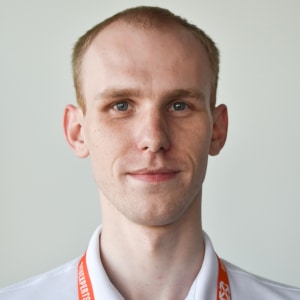
Vladislav Khomyakov
Devexperts
Vladislav Khomyakov
After a decade as an expert in software engineering and information security, Vlad has been specializing in iOS development for the past three years and has advanced knowledge of Swift and Objective-C. Vlad is a guru of FinTech software development and is passionate about exploring different architectural approaches. He’s committed to finding new ways to make developers’ life more manageable, writing elegant, well-designed, and efficient code that is in line with modern iOS development trends. All of his hobbies are connected to music, Vlad enjoys playing the guitar and drums as well as doing vocal and sound recordings.
Take no objections to Java for iOS
To a certain extent you can reuse the code when building mobile applications both for iOS and Android. Ideally, you want to reuse as much as possible to save time. In client-server apps, shared logic can be moved to the server-side, and most of the time, it’s acceptable. But what if it’s not in favor of the UX? What if it’s the kind that can’t be moved? What if you don’t even have a server? Can you optimize, or is it time to double the work and time spent fixing bugs to account for different platforms?
This is where J2ObjC comes into play. J2ObjC is an open-source tool from Google that can translate source code written in Java into Objective-C. This way, Java source can become a part of the iOS builds.
Devexperts have been tailoring code translation from Java to ObjC for years, and this approach is integrated deeply into our development process. We’re here to inspire you to give it a try yourself by showcasing some of our biggest wins with J2ObjC. The road ahead is scary. Fear not, we’ve got the painkiller for easily integrating J2ObjC into the development pipeline.
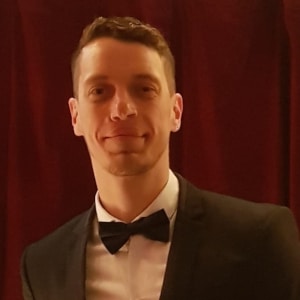
Andres Cespedes Morales
Mulesoft
Andres Cespedes Morales
I’m a software craftsman, Java evangelist, and professional Instructor working with large enterprises to improve their teams and the way they develop software. (OSS contributor, JCP Member)
7 Architecture Patterns Implemented in Java
Often times, you can find explanations about software design and architectural patterns but it is not that common to see those patterns implemented along with its definition.
In this session, we’re going to learn some of the top 7 architectural patterns for microservices implemented in Java, with frameworks as Spring, Microprofile, and many other open-source tools.
These patterns are very well suited for a microservices architecture, such as Event-based microservices, distributed transactions (sagas), service discovery, asynchronous inter-process communication using gRPC, distributed tracing, and much more.
10 Steps to become a Software Architect
Have you ever thought about becoming a Software Architect? Is it still a bit unclear what is needed to do it so? Also, why would it ever be good to step into Software Architecture?
In this session, we’re going to learn the what, why, and how of Software Architecture from a point of view based on lessons, academics, and the enterprise, and also how you can transform yourself from a developer role into an architect one, describing the different steps and challenges that you may find throughout this journey.
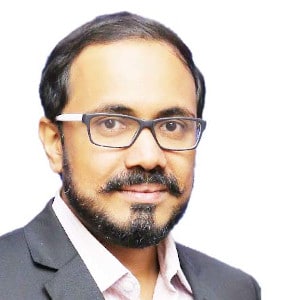
Tamaghna Basu
neoEYED Inc.
Tamaghna Basu
Tamaghna Basu, CTO of neoEYED Inc. is on the mission to www.killthepassword.com to build a safer world with stronger, yet very convenient authentication mechanism for companies and end-users. He is a hacker, speaker, trainer and a developer too. He has more than 15 years of experience in cyber-security domain and worked in large enterprises like PwC, Paypal, Walmart etc. to help them secure their products. His main areas of research include application security and network pen‐testing, incident handling and cyber forensics. Being a software developer earlier, he worked in python, java, .net, ruby etc. and various domains like finance, insurance, gaming etc. He is a frequent speaker/trainer in various conferences like NULLCON, C0C0N, OWASP, ISACA etc. and member of NULL, DSCI and other communities. He also contributed to security magazines like Clubhack and ISACA journal. He has accomplished various other certifications like Cyber Crime Investigation, Diploma in Cyber Law, OSCP, GCIH etc.
Preventing Identity Thefts and Impersonation Frauds using AI and Behavioral Biometrics
- Developing a risk framework with cognitive security;
- The technological expertise available to detect these anomalies and patterns.
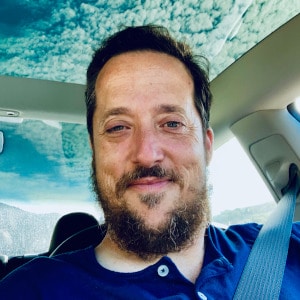

Andrew Lombardi
Mystic Coders

Andrew Lombardi
Andrew Lombardi is one of a new breed of businessmen: the enlightened entrepreneur. He has been writing code since he was a 5-year old, sitting at his dad’s knee at their Apple II computer. Having such a deep affinity for the computer model, it is no surprise that at the age of 17 he began to delve deeply into the inner workings of the human mind. He became a student of Neuro Linguistic Programming and other mind technologies, and then went on to study metaphysics. He is certified as an NLP Trainer, Master Hypnotherapist and Time Line Therapy practitioner.
Using all of his accumulated skills, at the age of 24, Andrew began his consulting business, Mystic Coders, LLC. Since the inception of Mystic in 2000, Andrew has been building the business and studying finance and economics as he stays on the cutting edge of computer technology.
The Three Keys of Remote Team Success
It has become increasingly easy to connect with talent across the globe. With the ubiquitous nature of the internet in increasingly remote locations, your team may even consist of people you’ve never met. While this is enticing, it comes with it’s own set of challenges. Learn the three keys to success as a remote team and utilize effective tools for achieving a smooth means of delivering solutions for your customers.
Privacy in the Age of Analytica
You are the product. The digital age has brought us many conveniences with the very real cost of our privacy as payment. The terms and conditions that none of us read have allowed companies to build a persona of who we are, and possibly better than we even know ourselves. Learn what your privacy looks like today, and how you can take very real steps toward reclaiming the anonymity that allows you to move through the world without being constantly sold.
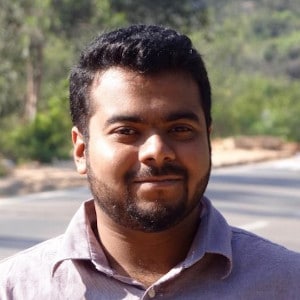

Subho Halder
AppKnox

Subho Halder
Subho Halder is the Co-Founder and CTO at Appknox, a mobile security company that helps developers and companies to build secure mobile application. He looks after the security technologies and the product development to ensure we are always ahead in our game. Subho has previously developed AFE (Android Framework for Exploitation) and has done in-depth research and analysis on mobile platforms. He has been also listed multiple number of times in various Hall Of Fame for finding out critical security vulnerabilities in Google, Apple, Facebook, Microsoft, and many more. He has presented many talks and conducted workshops at conferences like Black Hat, Defcon, ToorCon, SysCan, ClubHack, NullCon, OWASP AppSec, RSA Conference.
Securing your Mobile Apps during development
Mobile adoption is strategic in every industry today. Although it can be a great catalyst for growth, the security risks that come with it cannot be overlooked. Even though this fact is established, many companies are still not following some of the mobile application security best practices. The goal of this is to raise awareness about application security by identifying some of the most critical risks facing organizations during development.
We will be covering from basic OWASP top 10 security issues to live demos on different use-case scenarios on how a hacker can hack your application, and how to prevent them
We will also be talking about how to set your own mDevSecOps framework to make sure you can catch those security issues early in your development cycle.
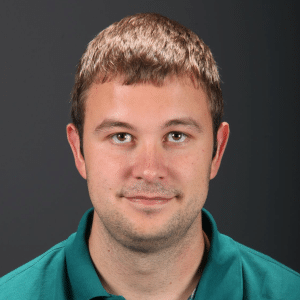

Nikolay Stoitsev
Uber

Nikolay Stoitsev
Nikolay Stoitsev is a software engineer at Uber where he builds scalable and fault-tolerant backend distributed systems. He is also a teaching assistant at Sofia University in Sofia, Bulgaria. The projects he is working on allow 3 million people around to world to earn money on their own schedule.
3 lessons on effective communication for engineers
Effective communication is one of the most important skills we need. It greatly improves our productivity. And multiplies the positive impact that we have on the products we build and the people we work with. In this talk, we are going to explore three lessons on better communication. First, we’ll start with key principles for building trust and good relationships with the people around us. Then, we’ll see why and how to manage expectations. And we’ll explore how requirements facilitation can make our work easier. We are also going to see how to apply code reviews to our communication and scale it to amplify our impact. And most importantly, we’ll go over some real-world examples of how to apply these lessons in our everyday work to become better engineers.
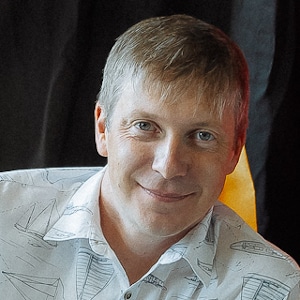

Serhii Romaniuk
DataArt

Serhii Romaniuk
About Serhii:
- 6+ years of professional experience in IT industry specializing in Quality Assurance;
- Thorough experience in manual and automated testing and setup of Quality Assurance processes;
- Current areas of professional interest: Quality Assurance, Project Management, Team Leadership.
QA Automation evolution. The new SEiT role breaks borders and limitations.
Insatiable market hunger for the new features and the ever-increasing development speed, as well as the complexity of the applications being created, require the team to make the product testable by design.
How to manage application quality with limited resources?
How to make auto tests decrease business risks?
How to create optimal auto test coverage and naturally maintain it throughout the entire application development cycle?
How to create the most understandable and maintainable user documentation?
How to build auto tested release process?
How much does full test coverage cost?
Get the answers to these and other important questions in this presentation.
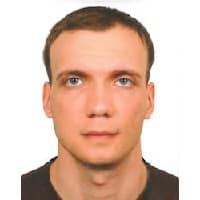

Roman Tsypuk
Lohika

Roman Tsypuk
Oracle Certified Java Expert. Contributes as a speaker on meet-ups, communities and conferences, mentors colleagues, has deep experience in telecom area and likes ham radio beyond programming. Roman is the most concentrated on topics about Spring, JVM performance, security, distributed systems, microservices and docker.
Organizer of Lohika’s Java community – weekly meetings with live coding session, new framework investigation, sharing experience.
Program committee member of morning@lohika community – monthly meet-up events for developers.
AWS Alexa: How to talk with your Smart Home Devices
AWS Alexa is a new Amazon web service that allows you integrate voice control into existing systems, by sending voice commands to control your smart home/ IoT devices, cars or integrated SW. I will explain it architecture, show how to develop custom skill for AWS Alexa from the scratch and run it using AWS Echo Dot. Also we will talk about AWS Lambdas, as they are used under the hood to operate with logic and commands.


Marc Gregoire
Nikon Metrology

Marc Gregoire
Marc Gregoire is a software architect from Belgium. He worked 6 years as a consultant for Siemens and Nokia Siemens Networks on critical 2G and 3G software running on Solaris for telecom operators. This required working with international teams stretching from South America and the United States to Europe, the Middle East, Africa, and Asia. Now, Marc is a software architect at Nikon Metrology (www.nikonmetrology.com), a division of Nikon and a leading provider of precision optical instruments and metrology solutions for 3D geometric inspection.
His main expertise is in C/C++, and specifically Microsoft VC++ and the MFC framework. He has experience in developing C++ programs running 24/7 on Windows and Linux platforms: for example, KNX/EIB home automation software. In addition to C/C++, Marc also likes C# and uses PHP for creating web pages.
Since April 2007, he has received the annual Microsoft MVP (Most Valuable Professional) award for his Visual C++ expertise.
Marc is the founder of the Belgian C++ Users Group (www.becpp.org), author of “Professional C++” 2nd, 3rd, and 4th editions, published by Wiley/Wrox, co-author of “C++ Standard Library Quick Reference” (Apress), technical editor for numerous books for several publishers, and a member on the CodeGuru forum (as Marc G). He maintains a blog at www.nuonsoft.com/blog/, and is passionate about traveling and gastronomic restaurants.
Writing Modern C++ Code
Since the release of C++11 in 2011, modern C++ code does not look at all like C++ code written before 2011. If you know the old C++ language, then you will have to unlearn certain things to write truly modern C++ code. Recent versions of the C++ standard have introduced new features to make your live as a developer easier. These features allow you to write code that is less error-prone, that is more easy to read and understand, that allow you to more easily use other aspects of the languages such as the Standard Library algorithms, that make it easier to write multithreaded code, and so on. This session will give an overview of these modern C++ features.
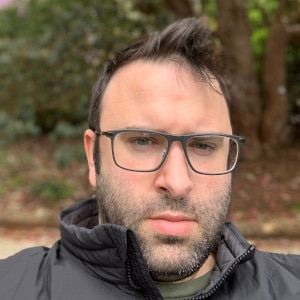

Alan Cooke
Zendesk

Alan Cooke
Alan is currently working at Zendesk where he leads the mobile engineering teams working on both Apps and SDKs. He has a great passion for software engineering and building high quality applications that are both functional but also beautiful. Building on his 10+ years of commercial software development, has a wide breath of knowledge which include highlights like building the first prototypes at MasterCard of the system which powers Apple Pay and Android Pay.
Robots, the best testers you will ever build
The talk will bring attendees on a journey from the current out of the box approach to UI automation testing, talk about the pitfalls and then introduce through Swift, the Robot pattern. The Robot pattern is a pattern commonly applied to test automation which allows an abstraction layer that is easy to write and easy to understand, so much so that even a product manager could write the tests. Moving beyond the basics of the pattern and show it running in action with a real app, we will evolve the pattern to leverage the latest function builders offered in Swift 5 to make our tests even more expressive, terse and easy to write.
Attendees will leave, having a new found love for test automation and how to put a strong pattern to use in their own code bases.
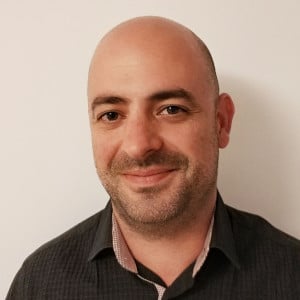

Jeronimo Martinez
DataArt

Jeronimo Martinez
My name is Jeronimo Martinez, I am a software engineer at DataArt. I’ve been writing software for about 15 years for different companies in Spain, Ireland and Poland. On my day-to-day work, I design, build and maintain big enterprise systems and data pipelines. On my spare time, I research new and interesting technologies, mostly related to functional programming, data engineering and machine learning, and then I try to make that somehow leak into my day to day work 😉
Survival guide for maintaining legacy systems
All systems have some degree of legacy, starting from the new one that you are creating just now, up to the one that has been abandoned for years but still keeps one critical active user somewhere. At some point in your career as a developer, you will inevitably end up maintaining a system that you didn’t write, and which you don’t know much about. What are your options? Are there tools and techniques that can make you work easier? Yes, there are! In this talk I’ll go over different approaches that will improve your experience dealing with a legacy system, and also, a set of recommendations for preventing future systems becoming legacy.
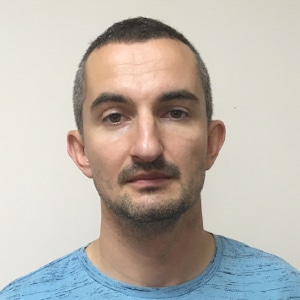

Tsanko Stoykov
TechnoLogica Ltd

Tsanko Stoykov
I have always been working for TechnoLogica Ltd.
If You measure experience in years, then mine score is 12+. I see my work as developing practical solutions to various chalenges. Main focus for me is reliability and speed in data processing. My best programing languages are PL/SQL, Java and SQL. My sort list of most encountered topics is – XML, JSON, document signatures, data masking, certificates, stream processing, big data, formula evaluation etc.
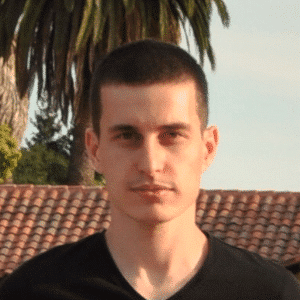

Vasil Chomakov
VMware

Vasil Chomakov
Vasil Chomakov is а Senior Software Engineer at VMware with 10 years of experience in the software industry.
He has specialized in building full-stack solutions for virtual infrastructure management as well as telemetry collection, management and analytics. Vasil possesses an extensive experience as a lecturer at Sofia University, VMware TalentBoost Academy and CoderDojo.
A Web App That Can Fit in a Tweet… Or Building Production-ready Enterprise Java Applications with Spring Boot
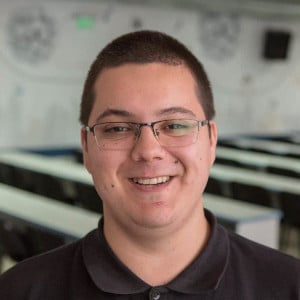

Nikolay Angelov
Nexo

Nikolay Angelov
Nikolay Angelov got into coding in early 2007 when he wrote his first mIRC script. He realized his love for coding and jumped into Web Programming. He continued to work in the field for 8 years and gained experience with various languages, for example, PHP, JavaScript, and MySQL. He then took a short break from programming to work on personal projects. A year ago, Nikolay re-discovered his passion for programming while taking a course about Blockchain. He is now a Blockchain Trainer and a Blockchain Developer. His passions are everything Blockchain, Solidity, C++, Vim and Blogging. Nikolay has a Personal Blog where you can read about topics that interest him: http://nikolaytech.com
Achieving Privacy in Public Blockchains
In the recent years we started understanding more and more why our Privacy is important and we need to start thinking about how we can achieve Privacy in the Public Blockchains so they can get more adoption.
In this talk we will see how this is possible and how we can use cleaver cryptography to achieve Confidential transactions and Data Privacy in Public Blockchains
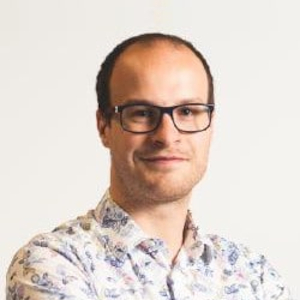

Simon Stone
IBM

Simon Stone
Simon Stone is currently the lead engineer for the IBM Blockchain Platform developer experience team based in Hursley, UK. His main focus is on building APIs, SDKs, and developer tools that blockchain developers can use to build smart contracts and applications on their journey to disrupting industries and enhancing the way businesses work together. He is a regular contributor to open source software under the Linux Foundation’s Hyperledger project, and a maintainer for Hyperledger Fabric.
Building smart contracts and applications with Hyperledger Fabric
Hyperledger Fabric is a permissioned blockchain technology where developers can build smart contracts, and applications that interact with deployed smart contracts. Smart contracts and applications can be developed in a range of programming languages, including Go, Java, and JavaScript, allowing developers to easily get started with this technology by taking advantage of their existing skills.
In this talk, you will learn the basics of smart contract development. You will learn how to build your first smart contract, how to write a transaction function, and how to interact with the ledger using the available APIs.
You will also learn the basics of application development. You will learn how to build your first application by using a connection profile and a wallet/identity to connect to a gateway peer, and how to submit a transaction to a smart contract.
Developers already familiar with Hyperledger Fabric will be able to learn about the significant enhancements that we’ve been delivering to the smart contract and application programming model since Hyperledger Fabric v1.4, including an update on our current plans.
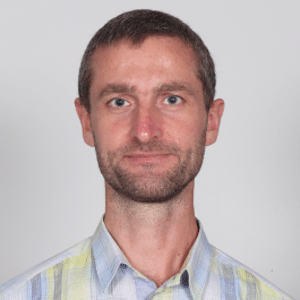

Trayan Iliev
IPT – Intellectual Products & Technologies

Trayan Iliev
Trayan Iliev (https://www.linkedin.com/in/trayaniliev/) is developer of end-to-end reactive full-stack applications and services using ES, TypeScript, Angular, React and Vue.js clients, and Spring 5, Reactor, Kafka, Pulsar, RabbitMQ, Express and Java EE back-ends. He has 15+ years of software development experience and 12+ years experience as enterprise IT trainer. Trayan is CTO of IPT – Intellectual Products & Technologies – training and consultancy company, focused on novelties in front-end and REST/gRPC/GraphQL backend development – reactive UI, end-to-end reactive programming, distributed event stream processing, real-time micro-service architectures, etc. Trayan has presentations on local developer conferences such as Voxxed Days, jPrime, jProfessionals, BGOUG, on topics like Spring 5, Reactor, SOA & REST, CDI, Java EE, React, Angular, Ionic, Node.js, RxJS, reactive java robotics, high-performance java. He is robotics / smart-things/ IoT enthusiast and organizes RoboLearn hackathons in Sofia.
Distributed Pub-Sub Messaging and Logging beyond Kafka with Apache Pulsar
Apache Pulsar is an enterprise grade distributed pub-sub messaging platform, with a very flexible messaging model and an intuitive client API. It was initially developed by Yahoo and currently powers major Yahoo applications like Yahoo Mail, Finance, and Sports. It combines capabilities of a horizontally scalable distributed pub-pub messaging system (like RabbitMQ, ActiveMQ, ZeroMq, etc.), with that of persistent logging platform like Apache Kafka. The presentation introduces to Apache Pulsar and its major features:
- horizontal scalability (millions of topics and millions of messages per second)
- strong ordering and consistency guarantees
- low latency durable storage
- load balancing
- multi-tenancy
- authentication and authorization
- quotas
- supporting mix of very different workloads
- optional hardware isolation
- REST API for provisioning, admin and stats
- geo replication
- transparent partitioning
- transparent message batching
Presentation finishes with a comparison between Kafka and Pulsar and a short demo.
Community Zone 2018 Speakers


Nikolay Stoitsev
Uber

Nikolay Stoitsev
Nikolay Stoitsev is a software engineer at Uber where he builds scalable and fault-tolerant backend distributed systems. He is also a teaching assistant at Sofia University in Sofia, Bulgaria. The projects he is working on allow 3 million people around to world to earn money on their own schedule.
3 lessons on effective communication for engineers
Effective communication is one of the most important skills we need. It greatly improves our productivity. And multiplies the positive impact that we have on the products we build and the people we work with. In this talk, we are going to explore three lessons on better communication. First, we’ll start with key principles for building trust and good relationships with the people around us. Then, we’ll see why and how to manage expectations. And we’ll explore how requirements facilitation can make our work easier. We are also going to see how to apply code reviews to our communication and scale it to amplify our impact. And most importantly, we’ll go over some real-world examples of how to apply these lessons in our everyday work to become better engineers.


Shenol Mustafov
e Foundation

Shenol Mustafov
I have strong interest in privacy and I’ve been following the area for a couple of years. Since 2018 I’m working as communication assistant in e Foundation. Prior to that I’ve worked on Windows server related projects at HP Bulgaria. I have studied computer science and Business Administration and I have diverse interests including Philosophy, Artificial Intelligence and Bitcoin.
/e/ – Android without Google
We are living in the era of mass surveillance and monetization of personal data by big companies. Convenience of using a mobile phone and personal data privacy can be hard to achieve at the same time. At e Foundation we are creating a privacy-enabled mobile OS ecosystem, free of Google surveillance. We are leveraging open source and community support to create an easy to use mobile OS, designed with privacy in mind.
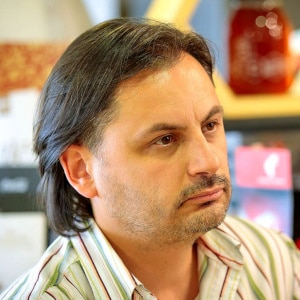

Neven Boyanov
Programmers’ Club in Veliko Tarnovo

Neven Boyanov
Irrepressible startup enthusiast, entrepreneur, lecturer, activist at the Programmer’s Club in Veliko Tarnovo. Started in 2013 the Tinusaur Project – an educational platform for learning electronics, robotics and programming. Co-founded in 2007 Interlecta, a product company with offices in Bulgaria and in US that develops products in the field of telemedicine.
Изграждане на общност, която да създава нови продукти и да стартира бизнеси
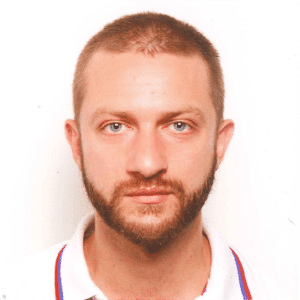

Stefan Kiryazov
Church of the Flying Spaghetti Monster

Stefan Kiryazov
Stefan, like most geeks, rejected the faith of his parents early in his childhood. Later in life, however, he missed the community support and sense of purpose that religious people enjoy – until he found Pastafarianism.
He converted to his new faith in 2009 and has spearheaded the Bulgarian branch of the church ever since. In 2016 Stefan and his now wife became the first couple in Bulgaria (and only 2nd in the world) to have a Pastafarian wedding ceremony, a rite they now recommend for everyone who finds the traditional church wedding boring and misogynistic.
“Говори ми в цифри” или колко е важно да боравим с измерими величини когато се опитваме да решаваме социални проблеми


Venelin Nikolov
QWERTY

Venelin Nikolov
Venelin Nikolov is a lecturer in Informatics and Information Technology at Vasil Levski Primary School in Razgrad. His professional career as an ICT teacher began at Nikola Economov Primary School in the city, where in 2009 she created the first virtual classroom in Bulgaria with 32 physical devices for teacher’s and students’ work. This innovation brings him the Teacher of the Year award and a meeting with the President of the Republic of Bulgaria on the occasion of May 24th.
Our robotics club is a town team. It is five years old, with kids from the first to twelfth grade. A student from the sixth grade invented the name of the team while watching the keyboard of the computer. These are the first letters of the left upper part of the keyboard. We gather together twice a week and work in groups. We do LEGO-robotics. We first construct robots and after that we program them for specific tasks and missions to help people. During the meetings we work and have fun. We often play team games or compete with the robots that we constructed. Once a month we organize sumo fights. On celebrations we take part with our robots. We like to show the constructed by us mechanisms and the programmes to students from our and other schools. It happens when our school celebrates.
Роботиката в учебния процес
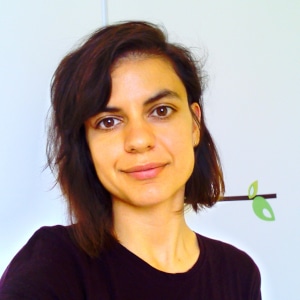

Tanya Kozalieva
Kinder Coder

Tanya Kozalieva
Co-founder in Kinder Coder. Kinder Coder is a small programming club for kids, created and developed with great passion by a young couple. They explore and develop creative ways to ensure conditions for children to make their first steps in the world of coding in an easy and funny way. Through local workshops, courses and trainings in robotics Kinder Coder is provoking kids interest and passion for digital skills. The club is located in a small town and its founders are focused on developing their activity in small cities where programming for kids is not popular and often even impossible.
Kinder Coder – the story behind it. If you can imagine it, you can also build it
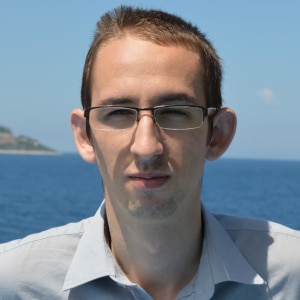

Gyuner Zeki
DostaviTuk

Gyuner Zeki
In the last few years he was a Technical Lead, Manager of Software Development and had other similar roles. He co-founded DostaviTuk and SuperSecure.
Email (email solution for SMEs) and contributed to open source community via his open source project EasyMail at GitHub. Gyuner’s work involves creating Architectural solutions, Proof of Concepts (PoC) and leading teams towards achieving goals.
Despite his young age of 27, he has been in the IT industry for more than 10 years. He completed studying Informatics at Plovdiv university “Paisii Hilendarski”.
He is a professional lecturer and has trained more than 100 students in programming both in classrooms groups and one on one.
Instant delivery right here


Taniyana Georgieva
Organizational Leader ABLE

Taniyana Georgieva
Taniyana Georgieva is an Organizational Leader at Association of the Bulgarian Leaders and Entrepreneurs (ABLE)
– an active community of over 300 young professionals and entrepreneurs who develop projects with main focus on leadership and entrepreneurship which are driving the positive change in Bulgaria. Their portfolio includes a mentorship program for high-school students, an early stage entrepreneurship program for university students and young professionals, a course in doing business for real-economy businesses, a startup competition awarding the best startups and ecosystem players in Bulgaria each year.
Taniyana is a Psychology graduate with specialization in Organizational Psychology and a master of Psychological Counseling. She is a certified coach from the American Institution “Quantum Success Coaching Academy” and for the past 5 years has been doing professional coaching for different NGOs in Bulgaria and abroad. The last 2 years her experience spreads in the fields of Human Resource Management
and Project Management before taking the role of community manager of ABLE. Over all she has 9 years of volunteering experience in the NGO sector being on various leadership positions working on fundraising, event management, marketing and raising awareness on important topics as a whole.
Particularly passionate about mental health and fulfillment of humankind’s potential, Taniyana has been actively working and advocating for building healthy, encouraging and productive organizational cultures where employees feel happy and motivated to grow professionally in their particular company or organization. By this solving the problems with high turnover, disengagement of employees, bad or lacking onboarding and so many more.
ABLE Activator – the ultimate entrepreneurship program in Bulgariа
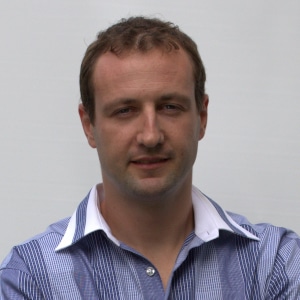

Viktor Balabanov
Znam.be

Viktor Balabanov
Тесен специалист в сферата на soft skills тренинги с повече от 11 години практическият опит в работата с над 60 компании в България и в страните на Балканския полуостров. Образованието, лицензите и сертификатите му го поставят сред най-стойностните специалисти в областта на обученията в бизнеса. Понастоящем: управител на I can be … и създател на продуктите на Znam.be
Играя, уча и умея – как да уча, за да мога, без да се страхувам, че ще сбъркам
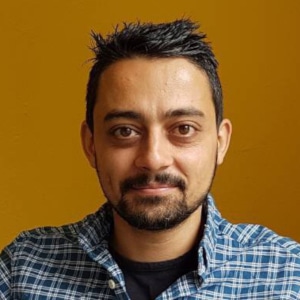

Pavel Tashev
StartupStage

Pavel Tashev
Уеб разработчик и предприемач. Разработил платоформите Schoodle свързаща учители и родители през Интернет, QRL (bit.ly за QR кодове), Peoplegogo (Crowdfunding платформа за благотворителни дейности) и StartupStage (мрежа от предприемачи и Startup-и, помагащи на други Startup-и да развият своята бизнес концепция).
Представяне на StartupStage
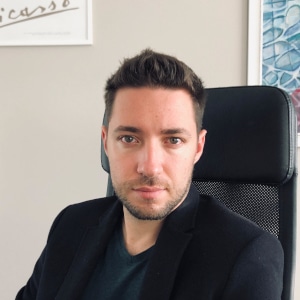

George Petrov
FuseМotion

George Petrov
Co-founders George Petrov and Ivan Shopov embark on the shared quest of “accelerating the world’s transition to electric vehicles” by designing a more engaging and inspiring driving experience. FuseMotion’s first product is designed for our auditory senses. Visit us and experience the sound of the future of mobility.
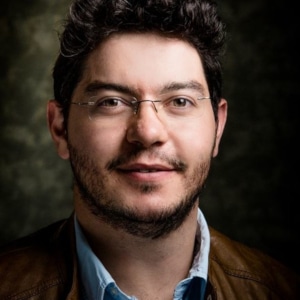

Emil Shekerdzhiiski
Networking Premium

Emil Shekerdzhiiski
Emil is an entrepreneur, teacher and “to the moon” cabin crew recruiter. He has been in the 9-5 business for a few years, learning teamwork, developing management skills and understanding how business works. “I never left my job, without being sure of my next adventure will yield and become sustainable. But when it happened I knew I was ready to leave my job. Drastic changes in life should be made slowly.”
Kак се е зародила идеята за NETWORKING Premium и как е вдъхновила екипа и членовете му


Yanko Iliev
Cherryz

Yanko Iliev
В Cherryz.work няма отворени пространства, а само отделни офиси. Това помага на стартиращите екипи да се концентрират и развиват. Ето защо, Cherryz.work има потенциала да се превърне в твоето ново работно място.
Coworking is dead Alive


Irina Seliktar
#SwiftSofia & #Spodari

Irina Seliktar
Hi to all Swift Enthusiasts in Bulgaria. Let’s start the talk on Swift. It’s been around for a while and the community is there, eager to meet and share experience.
We will do meetups every month to discuss and discover the variety of functionalities of Swift. The meetups won’t be so much of sit & listen type of conference,
but rather practical hands on sessions.
#SpoDari (от спортувай и дарявай) е идеята ни за това как можем да съчетаем спорт и добра кауза. Всички имаме нужда да се движим и спортуваме.
Движението ни зарежда, движението ни мотивира, движението ни прави по-усмихнати и позитивни. А ако работното и домашното ни ежедневие
не ни раздвижват достатъчно, трябва да се постараем, за да сме жизнени и здрави.
Инициативи SpoDari и SwiftSofia – как и защо да се включиш
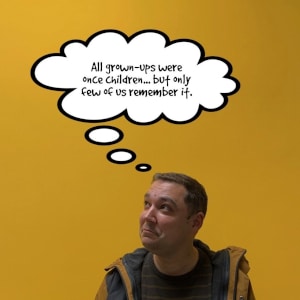

Nayden Gochev
BG JUG

Nayden Gochev
The Bulgarian Java User group was founded in September 2007 along with a mailing list for discussion
of any Java-related questions, problems and upcoming technologies. After a short period of dormancy,
five members set leadership board in 2013. It triggered regular meetups and sessions once or twice a
month with local and foreign speakers. The JUG first took part in several Adopt OpenJDK activities and
soon after that became JCP member. The events and workshops organized by the community are
sponsored and backed up by IT companies on the Bulgarian market
Bulgarian Java User group: past, present and future
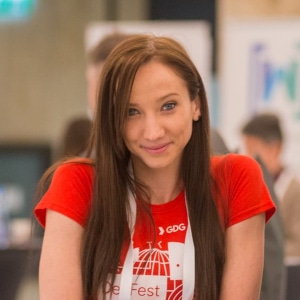

Marchela Mincheva
GDG

Marchela Mincheva
GDG Sofia is а group of enthusiasts that gather around Google technologies. We organize different events – seminars, conferences or just dine outs, and discuss the latests developments.
GDG Initiatives and What Comes Next


Vasilena Vasileva
Women Who Code

Vasilena Vasileva
Василена Василева е част от екипа на DEV.BG – най-голямата ИТ общност в България и активен член на Women Who Code – Sofia! Организатор на събития по професия и доброволец по душа.
Women Who Code Sofia е българският клон на женската общност, чиято цел е да вдъхновява и подкрепя жени в тяхното развитие в технологичен и социален аспект.
Инициативната започва преди 3 години като част от международната общност “Women Who Code”, присъстваща в повечето страни в света.
В момента Women Who Code Sofia е най-разпознаваемата женска организация в IT сектора, която организира всеки месец събития с различна тематика.
По време на презентацията ще разберете какво предстои на организацията през 2020 г. и кои са новите предизвикателства пред тях.
Women Who Code през 2020 г.
CodeMonsters Highlights
A Unique Experience for Software Professionals
The first-of-its-kind and first-of-its-scale event for software engineers in Europe, which is focused not only on development technologies but is dedicated to improving every aspect of developers’ life.
Development Technologies & Latest Trends
Get ready to take in three days of the most popular and cutting edge development technologies combined with practical training, tips and tricks from the leading industry experts.
inspirational Speakers & Coding Tips
See our inspirational speakers dedicated to helping you reach the next level of coding and career development. Choose from more than 50 in-depth sessions, hands-on labs and discussions.
Engineering Culture & Soft Skills for Devs
Learn why a company’s engineering culture is possibly the most important thing an engineer can consider when evaluating a job offer and which are the most useful soft skills for software developers among other things.
Lifestyle & Free Time Activities
Get the chance to see new motorcycles and attend riding school, take cooking classes or try any other activity you would not expect to experience during a software development conference.
Community Friendly with Free Tracks
CodeMonsters is a commercial event, but we do support the community in any possible way. The conference offer free of charge tracks accessible through registration.
Subscribe to our newsletter to get latest updates
CodeMonsters Tracks
Core Languages
C/C++, JavaScript, Python, .NET/Mono, PHP, Ruby and Others
Emerging Languages
Go, Rust, Swift, Node.js
Modern Web
JavaScript frameworks & tools, CSS3, HTML5
Mobile Development
iOS, Android, Cross-platform frameworks
Databases
SQL, NoSQL, Distribution, Replication, Performance
Backend & HPC
Services frameworks and tools, Scaling, Performance Tuning, Algorithms
Big Data & Analytics
Data Storage, Processing, Analysis, Decision Making
QA Engineering
Continuous Integration, Automation, Verification
Cloud, DevOps & Infrastructure
The Operations perspective on Software Development
Development process, Methodologies, Tools
The healthy environment needed for every IT Professional
Security & Risk Management
Designing robust applications resilient to contemporary attacks
IoT and Robotics
RPi, Arduino, Embedded
Reserve your seat now
Who attends?
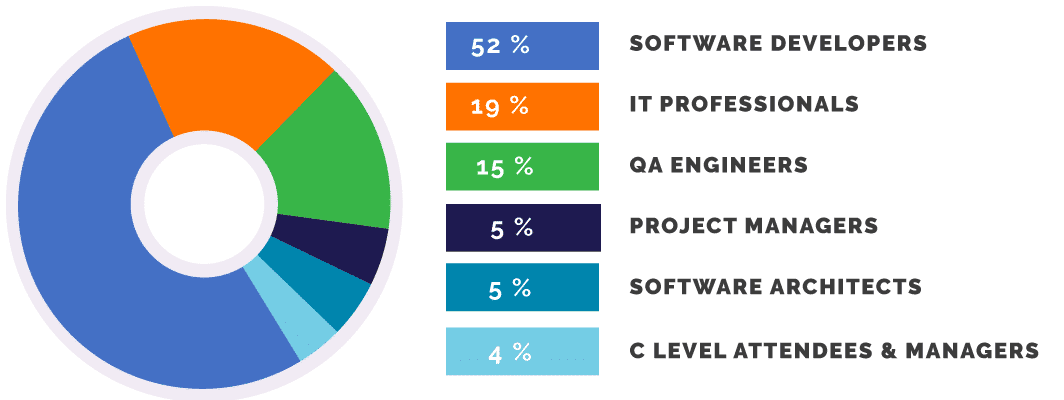

Why sponsor
Developers Gathering Point
2500+ Leads
Great Atmosphere
Special Awards
Full Halls
Hackathons
Highlights
60+ Speakers
5 Stages
80+ Sessions
1500+ Connections
Discussions
Networking
Still not convinced? See the most important reasons to attend.
Become a sponsor
See the full list of all attendee titles
Check pricing and packages
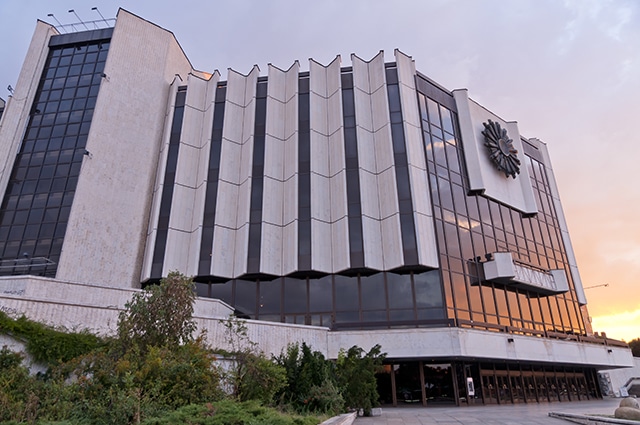

Venue: NDK - Congress Center
20 000+ sq.m.
4 000+ Seats
Prestigious
Great location
Check out the conference venue
Latest news
By:iva Comments:0
Discussion Panel @ GTS Revealed
The main set of topics of Discussion Panels is revealed. The focus of 2019 Discussion…
By:iva Comments:0
List of Sessions & Master Classes is available
The preliminary list of topics and master classes for all the events that are part…
By:iva Comments:0
Become an Official Sponsor of Java2Days SuperDev Hoodies 2019
You can build brand awareness among the software developers and demonstrate your support of the…




